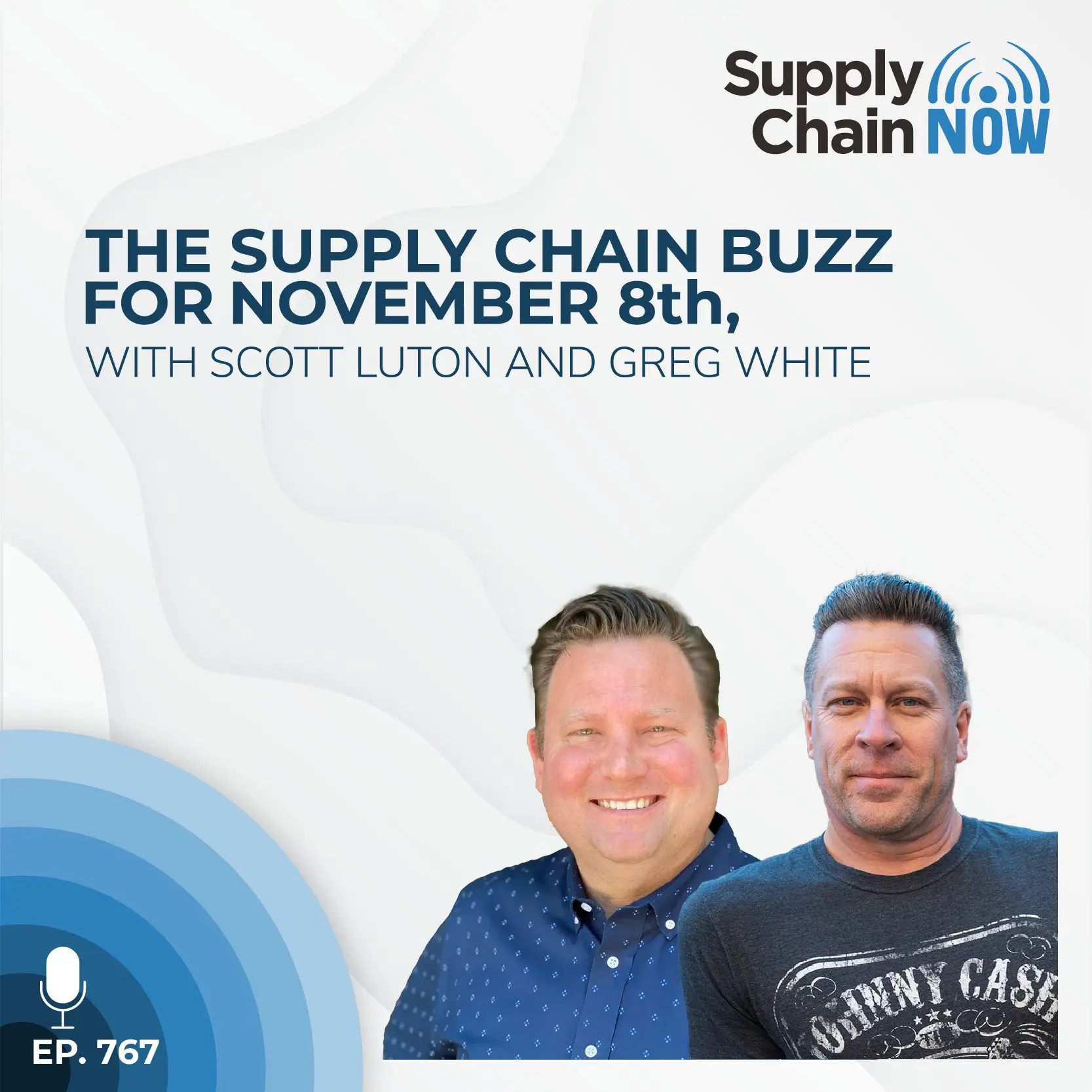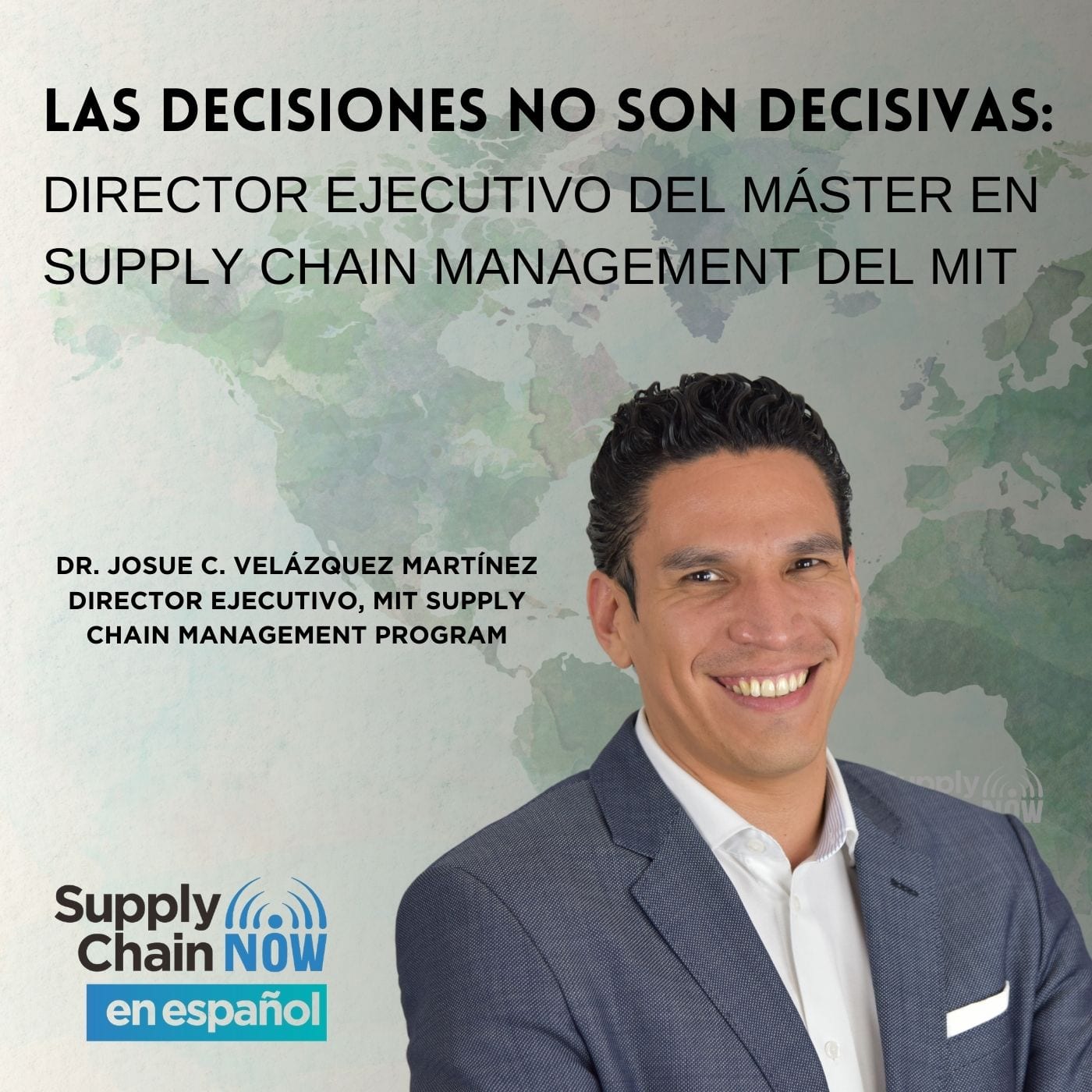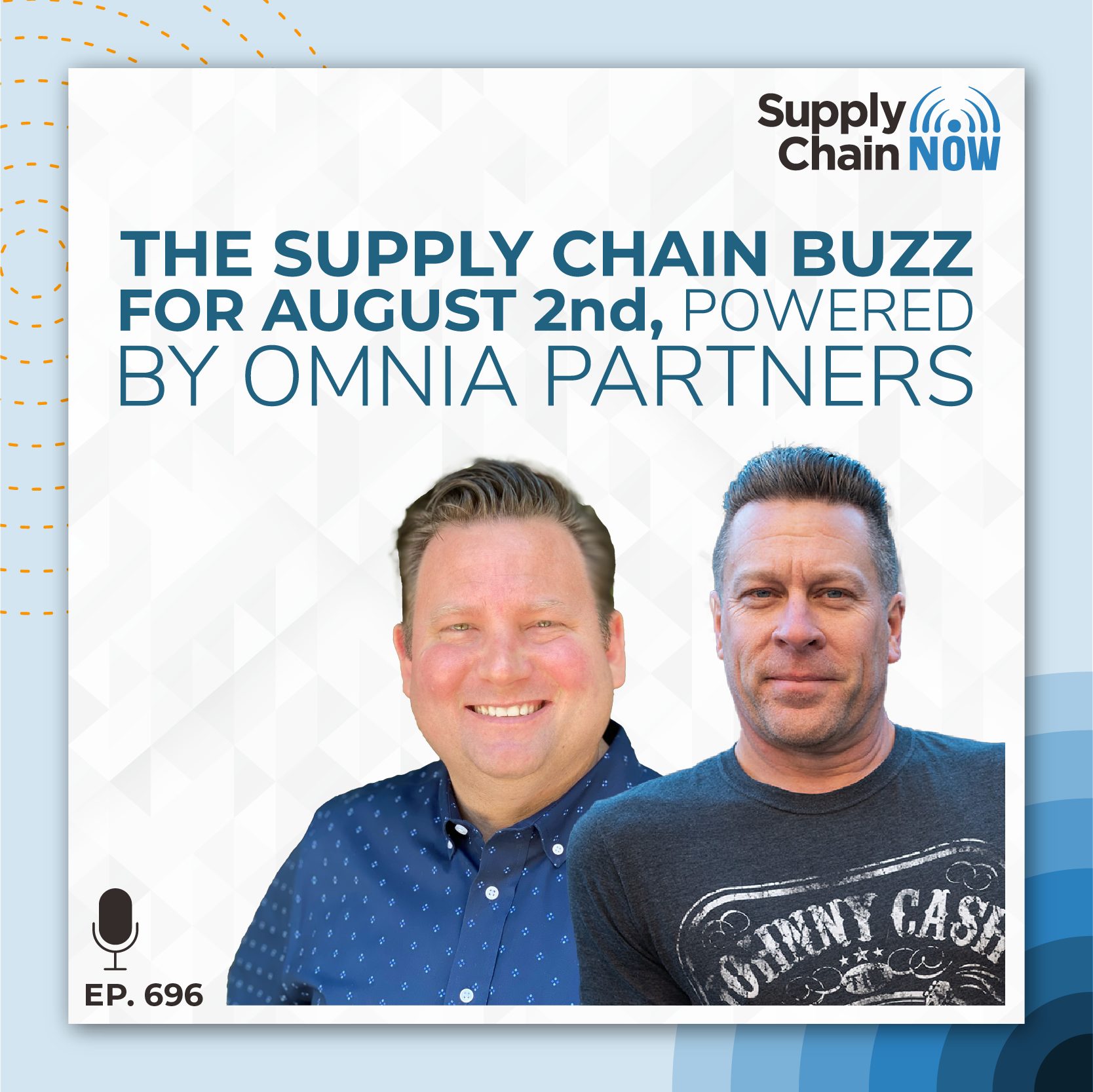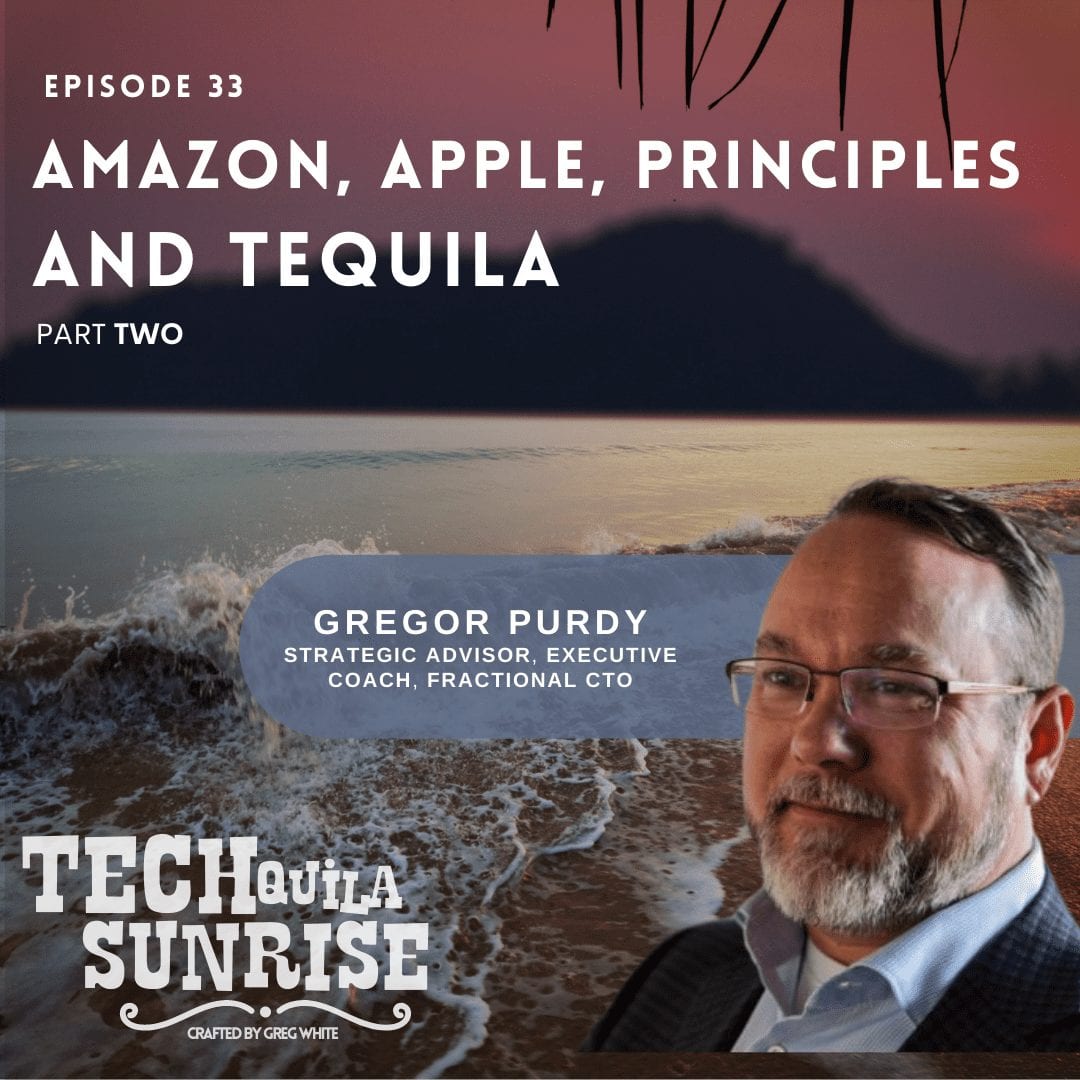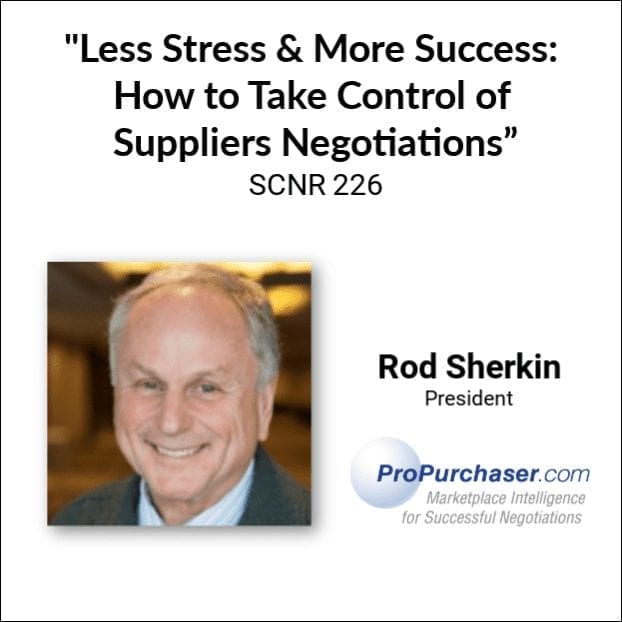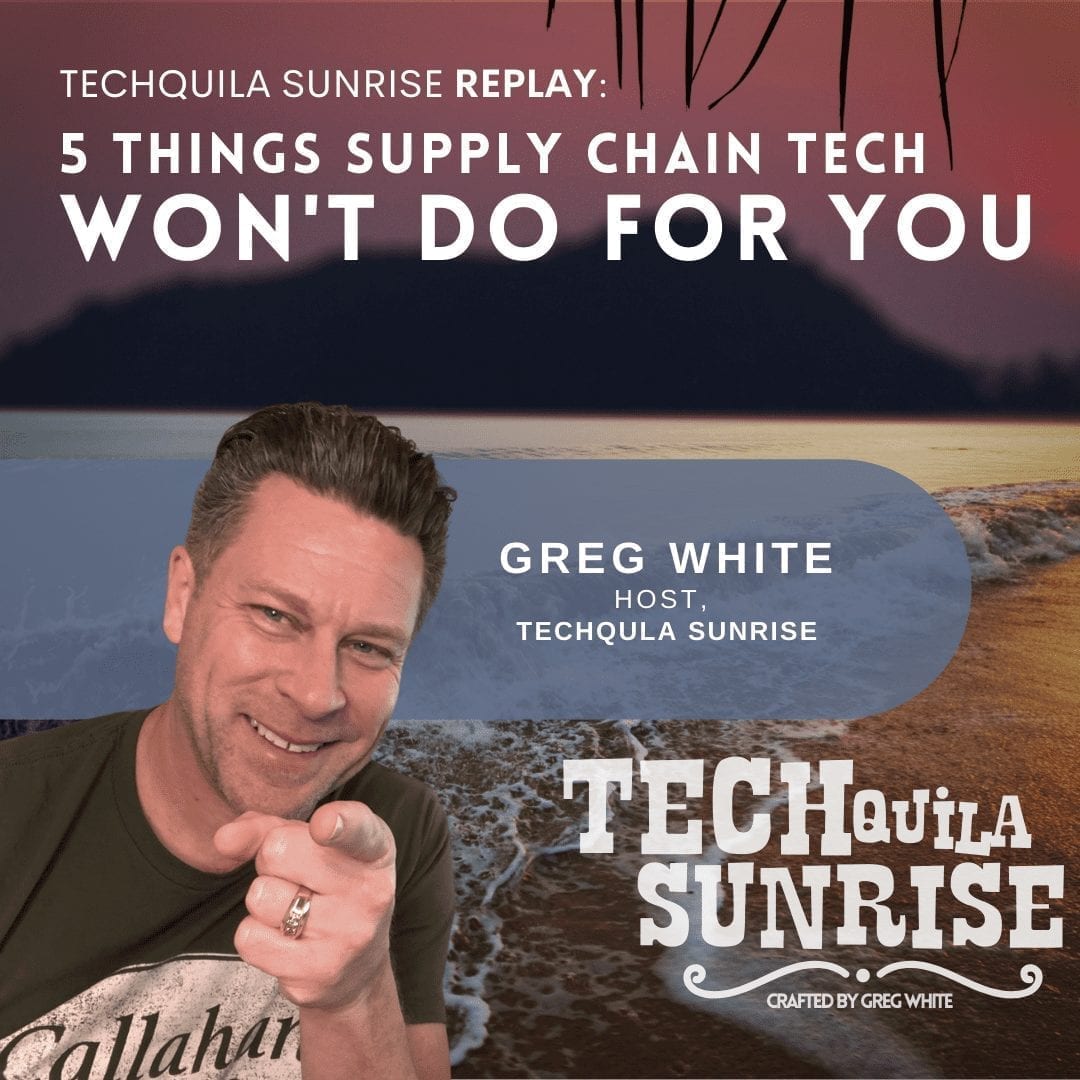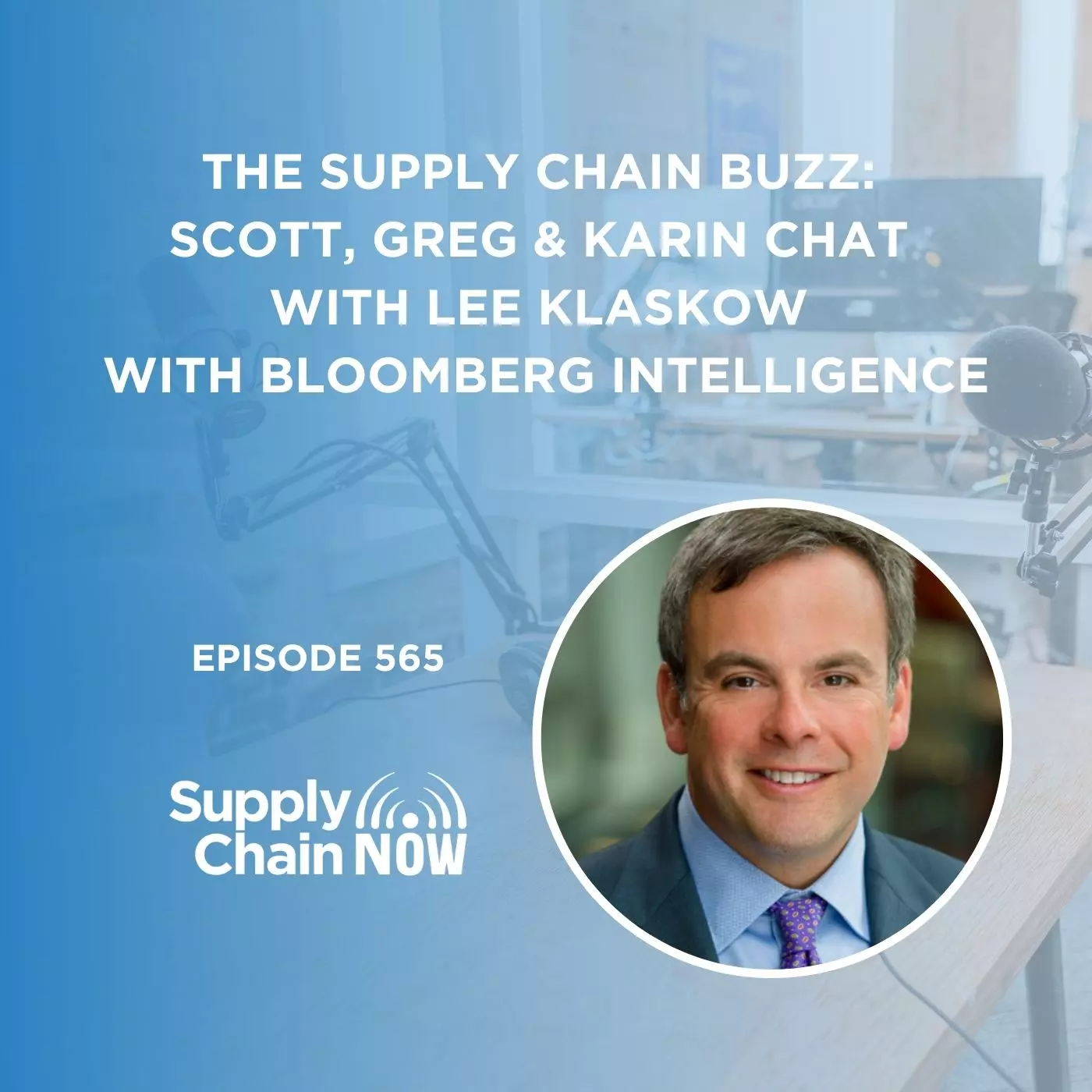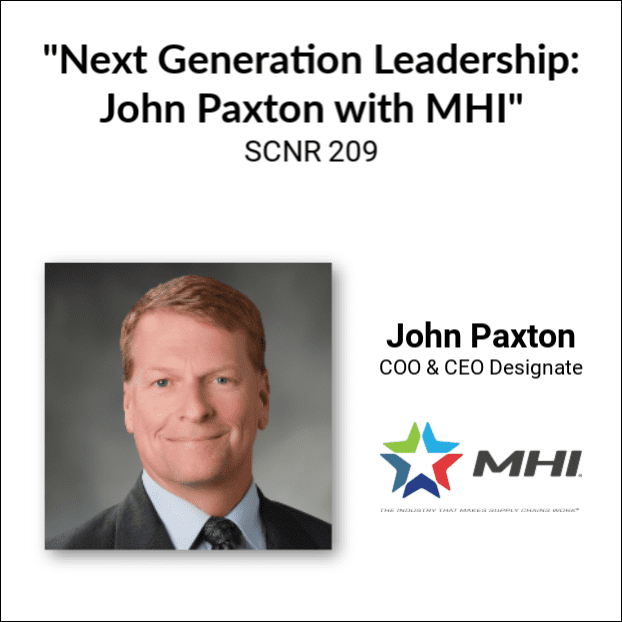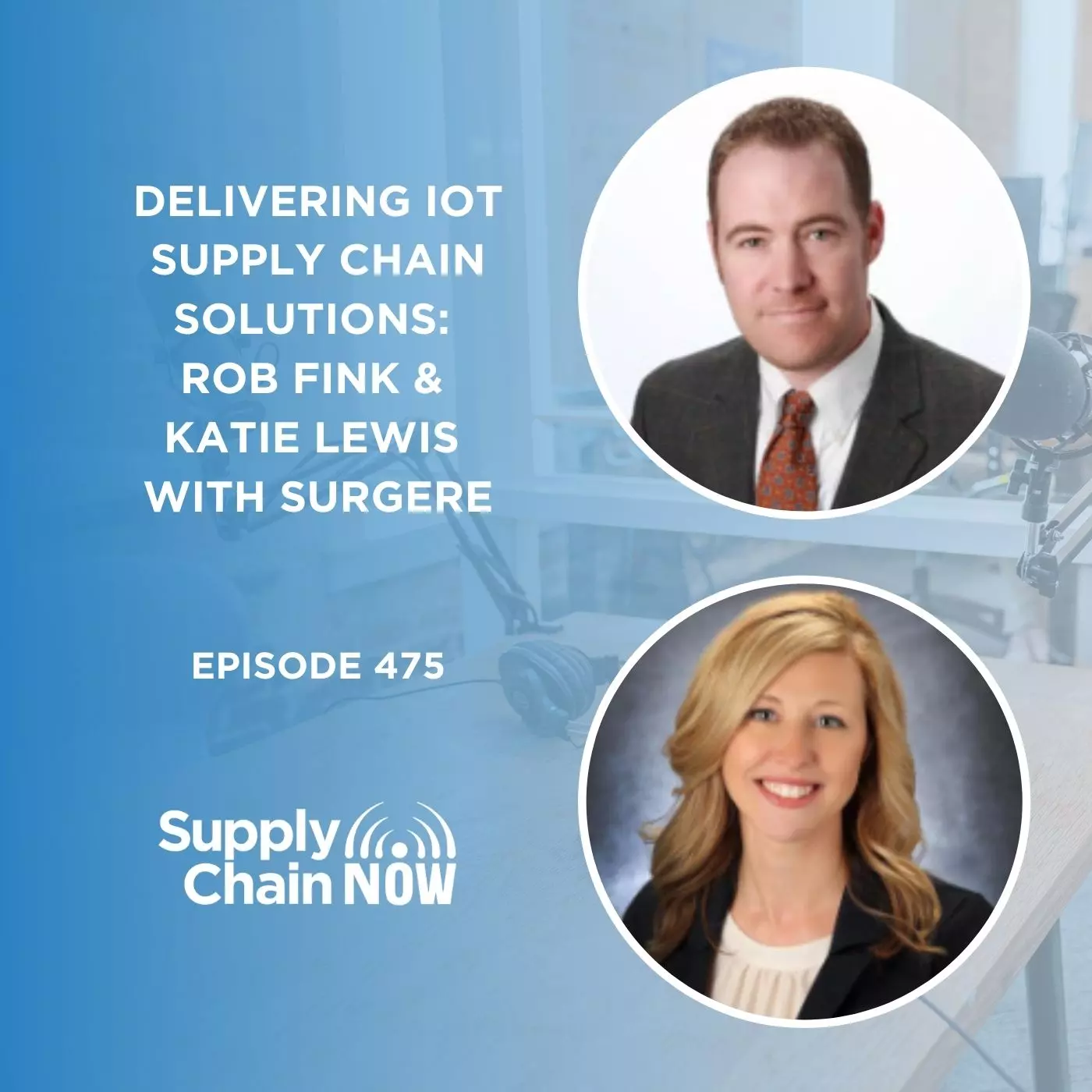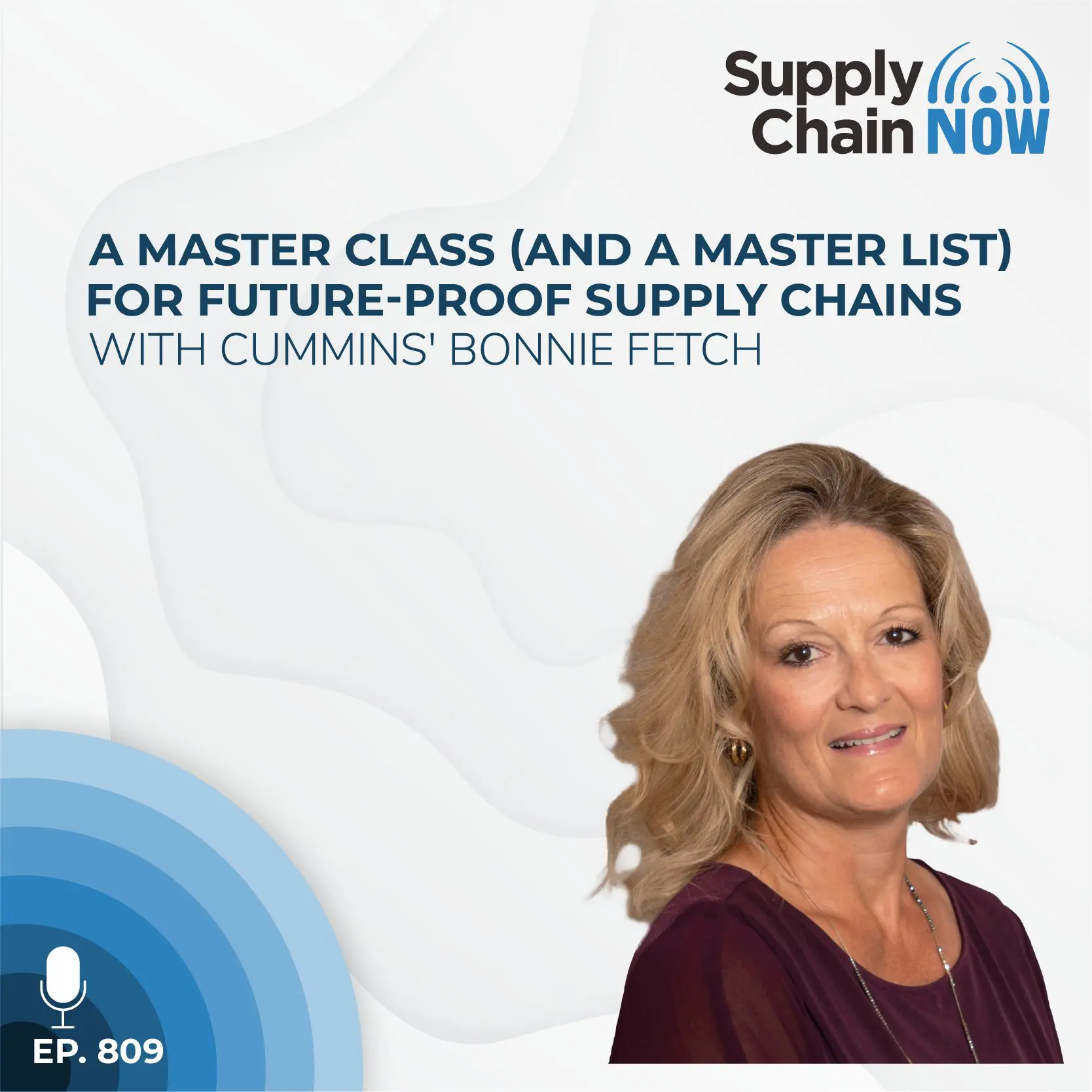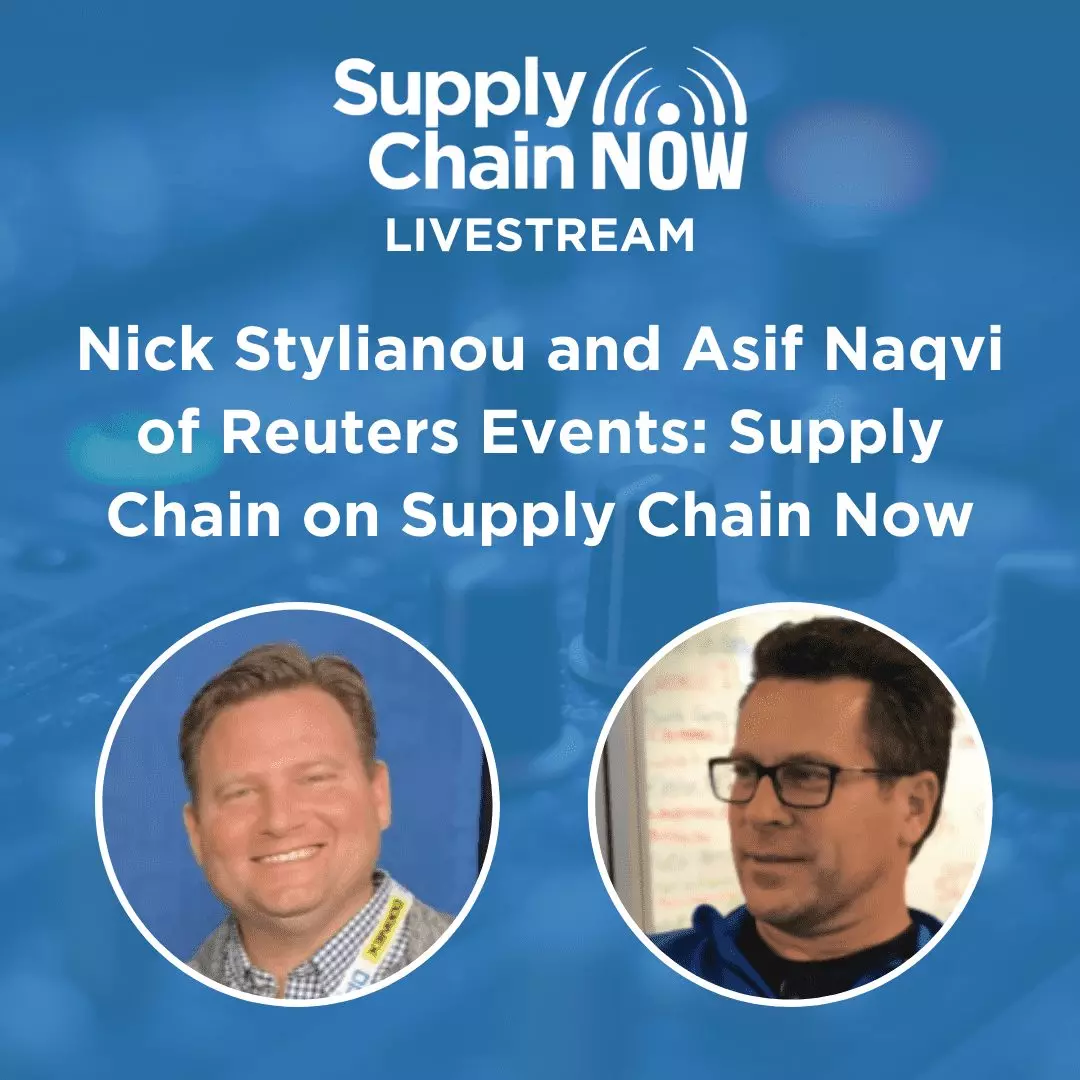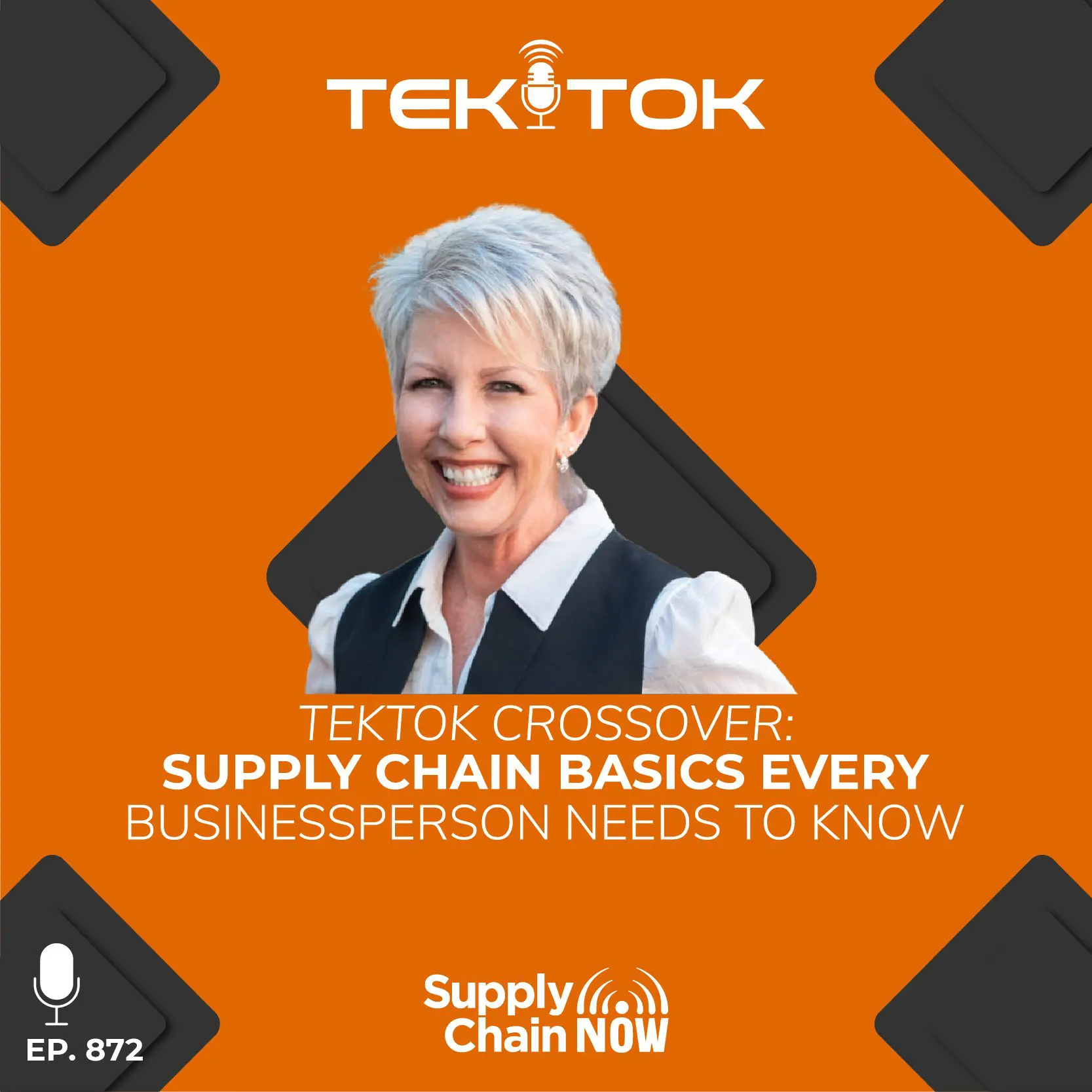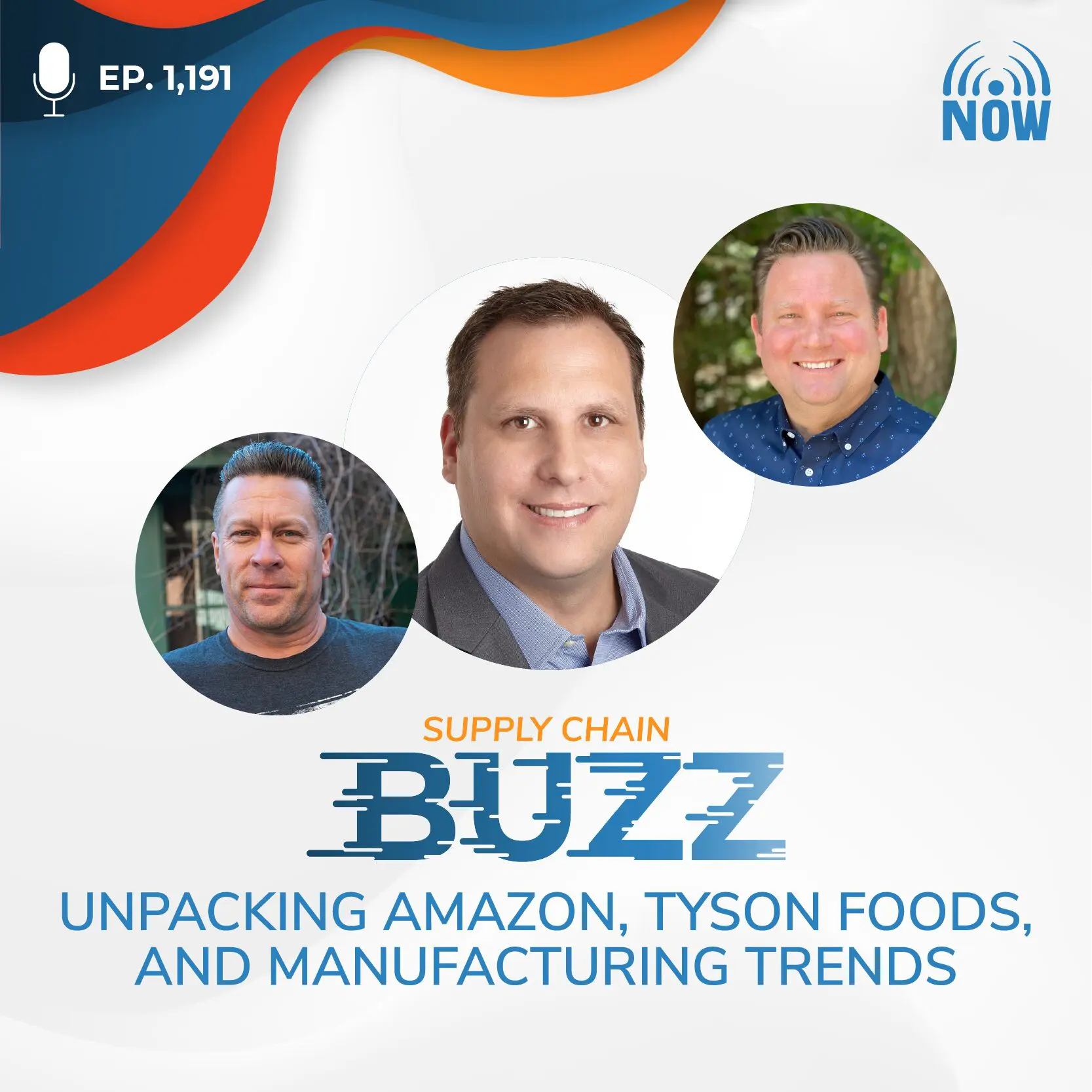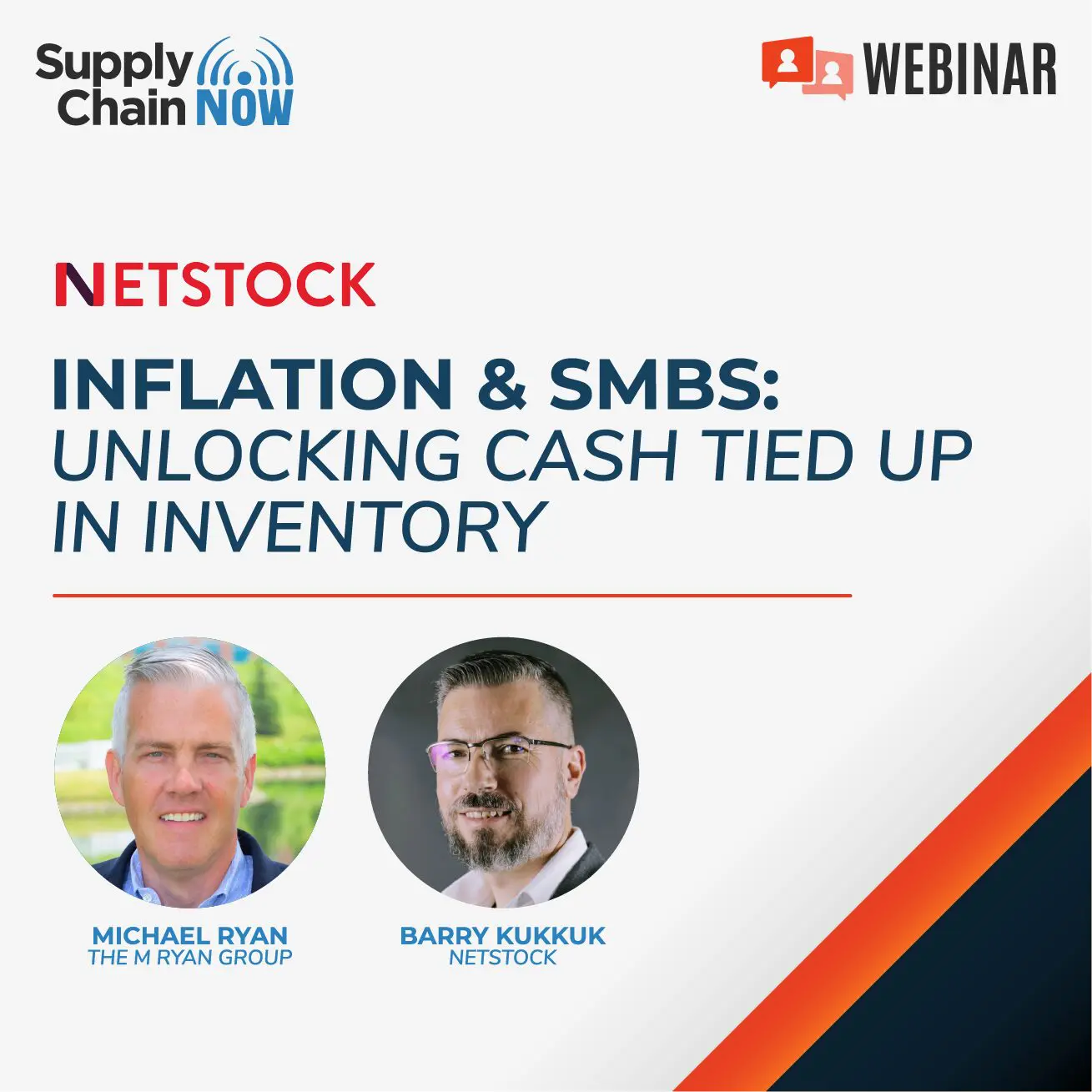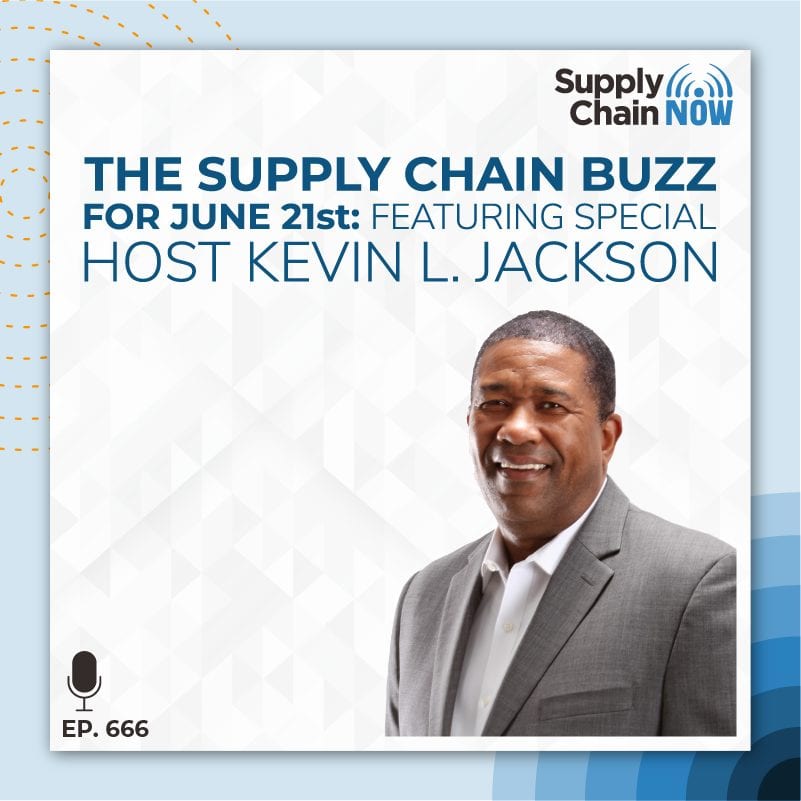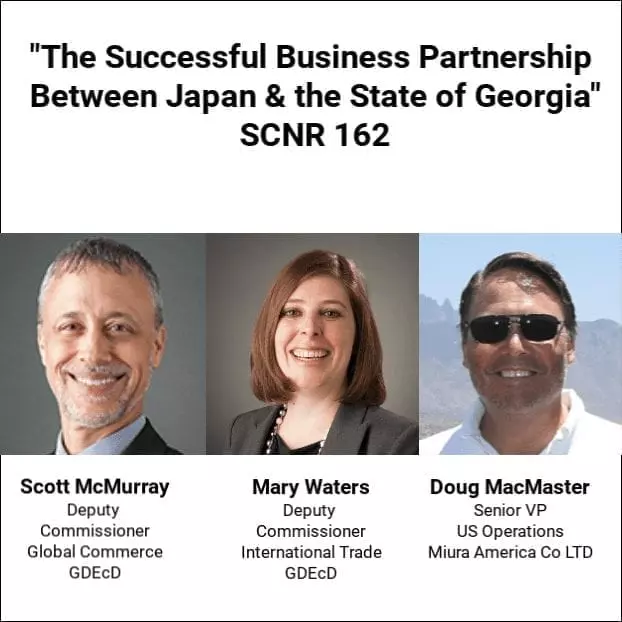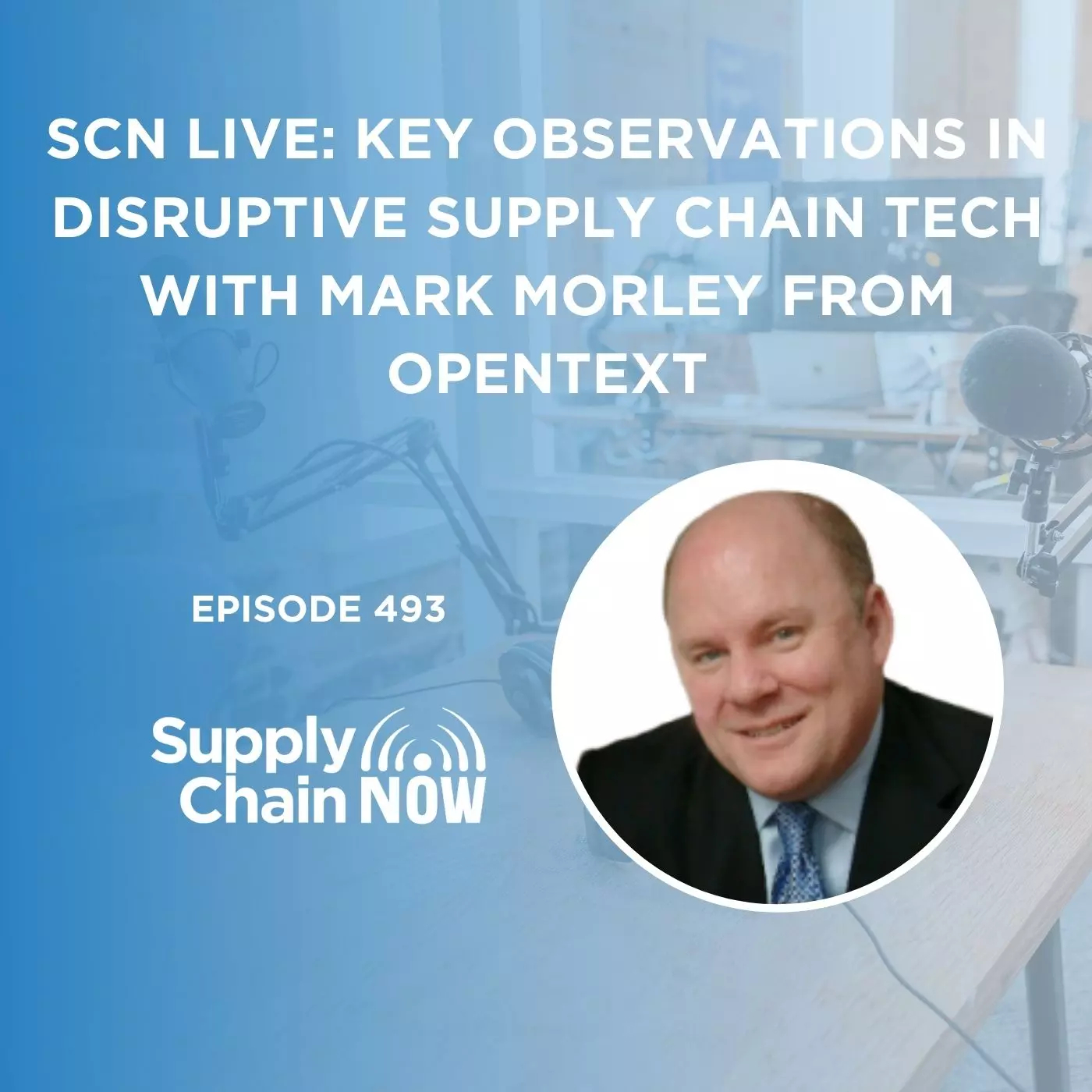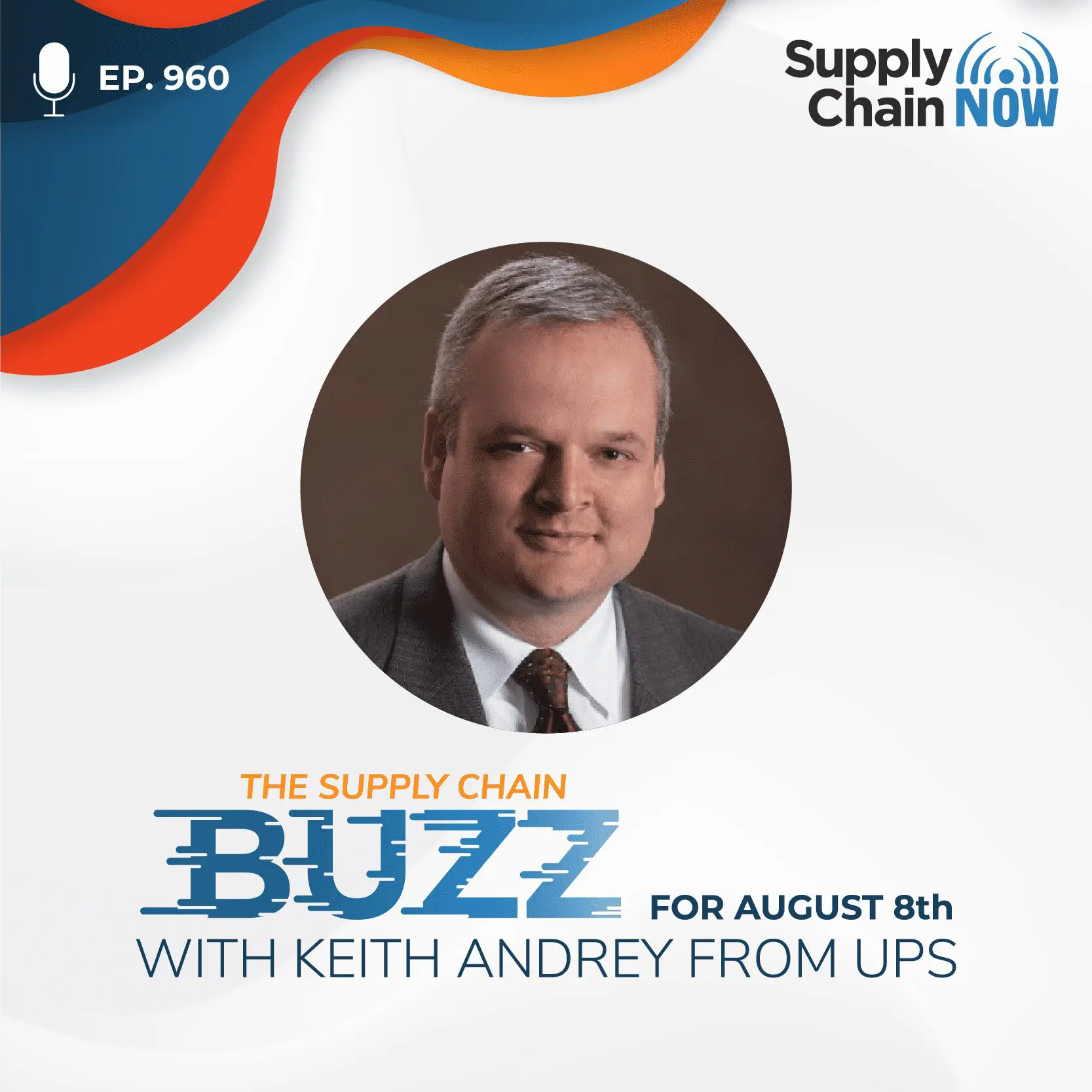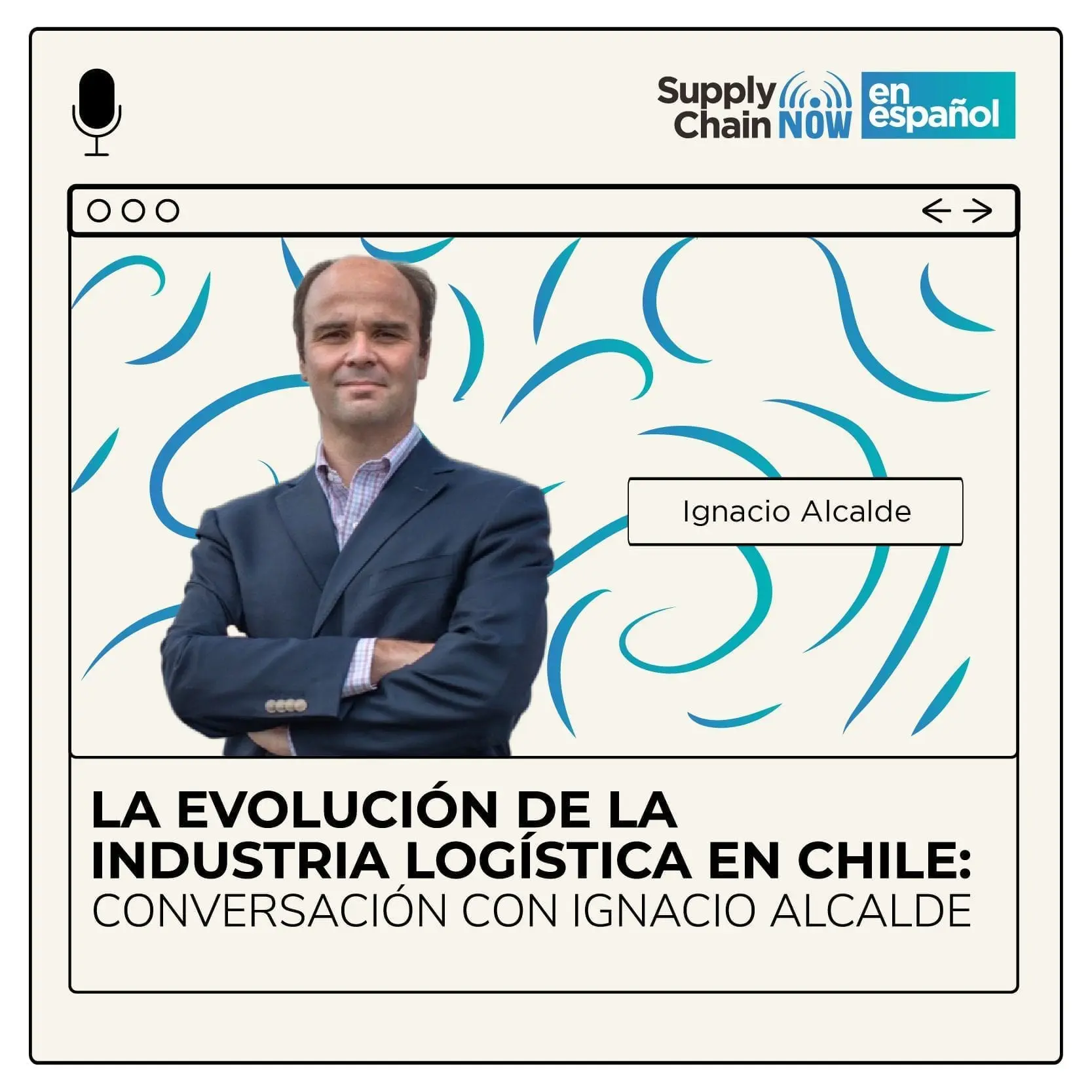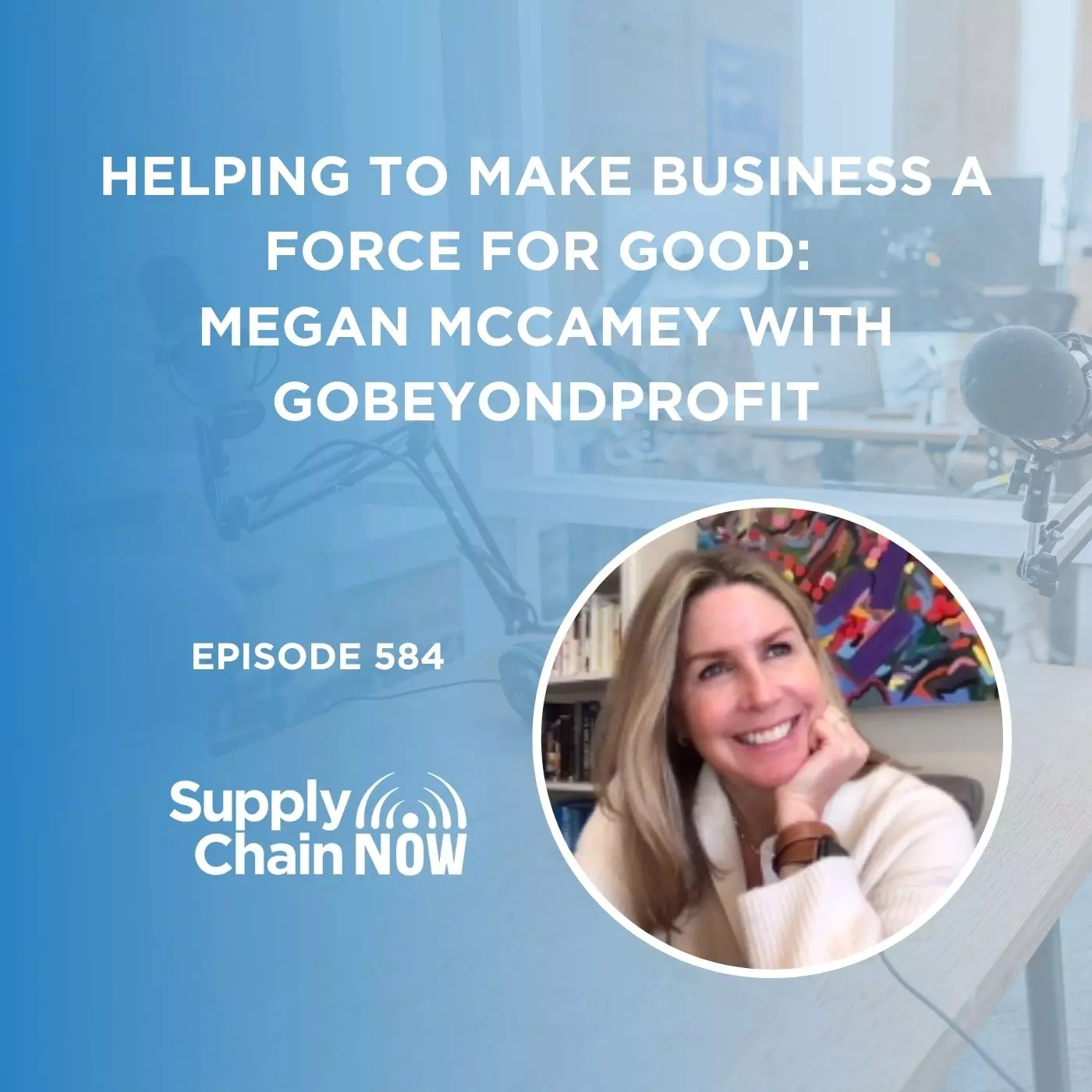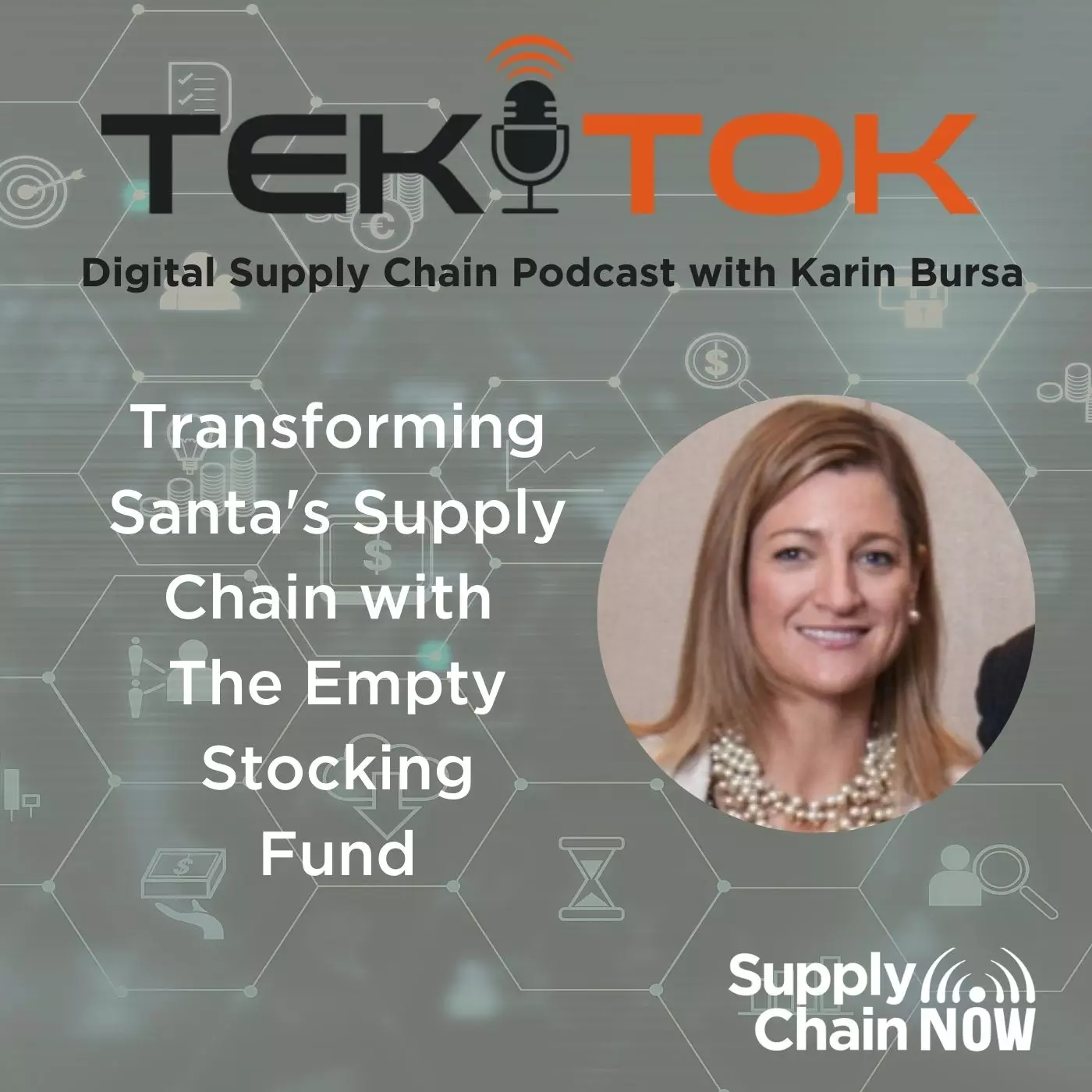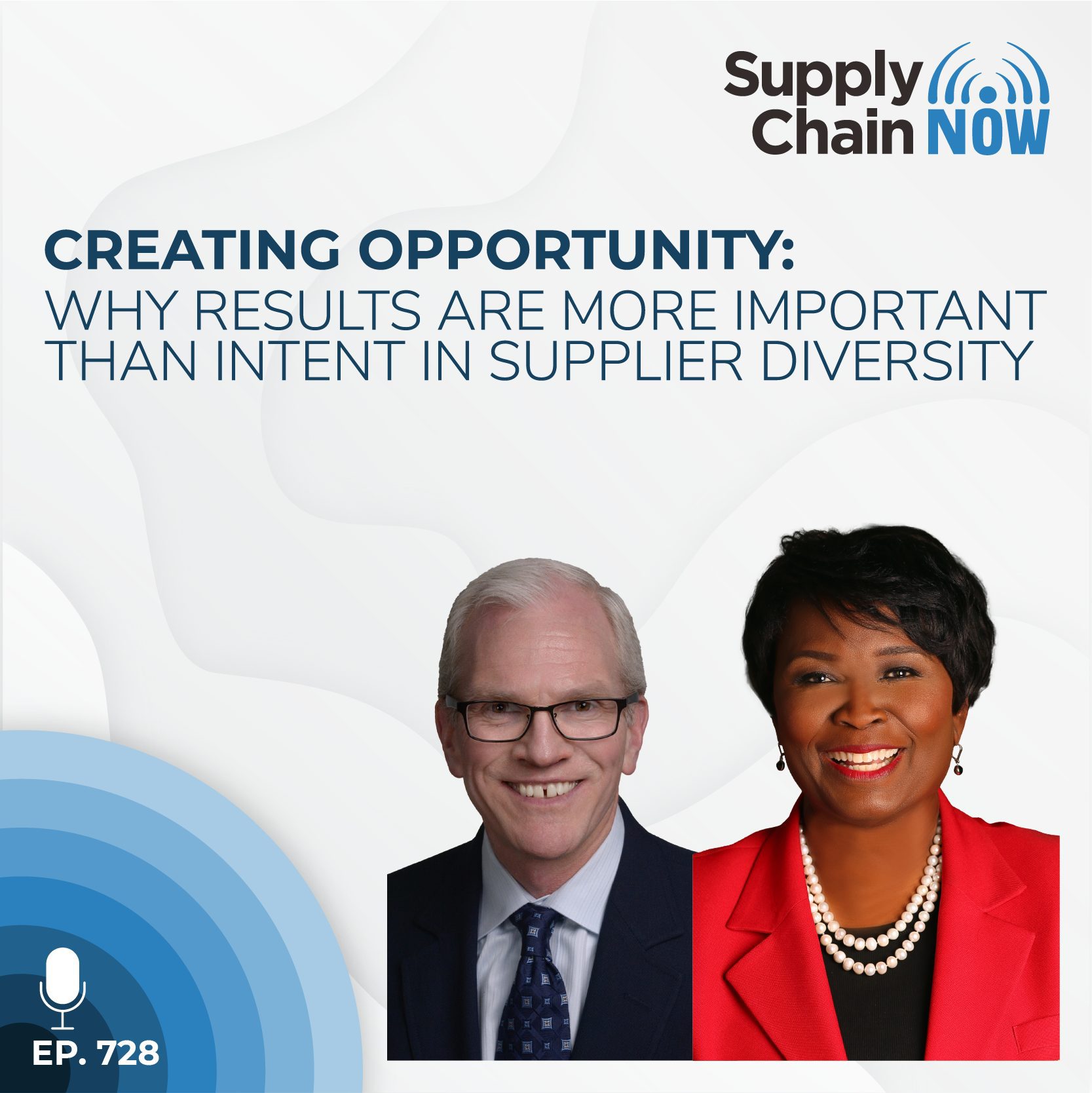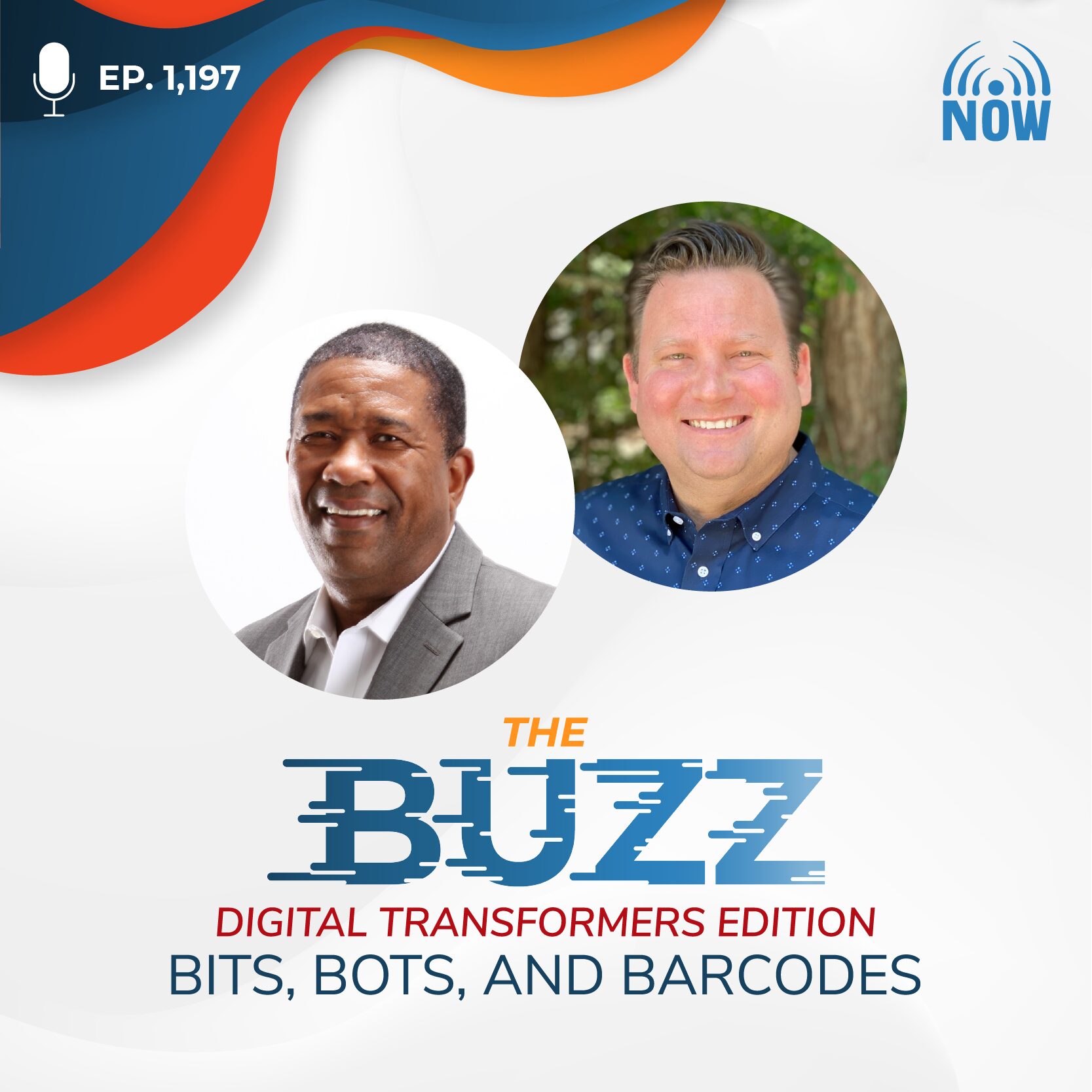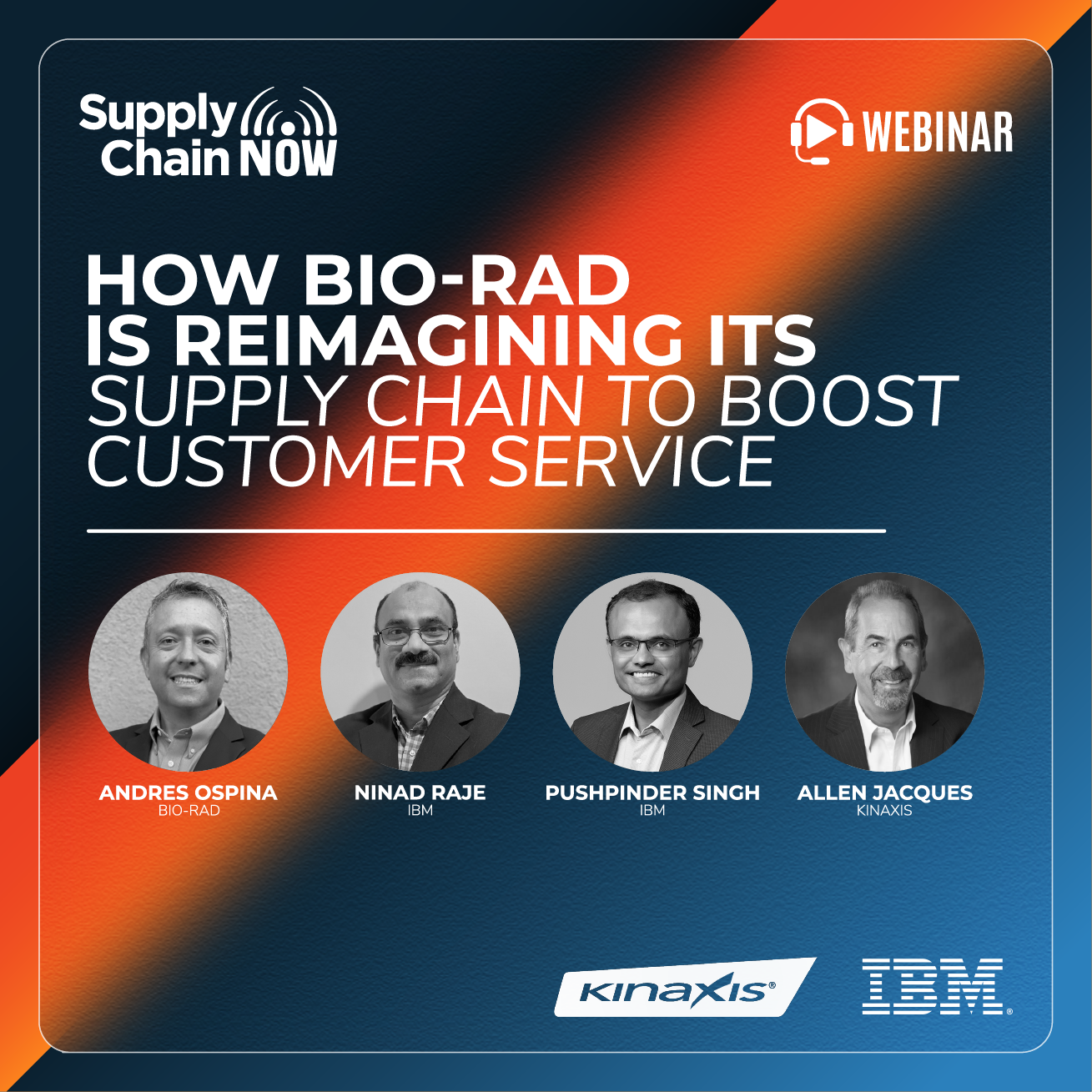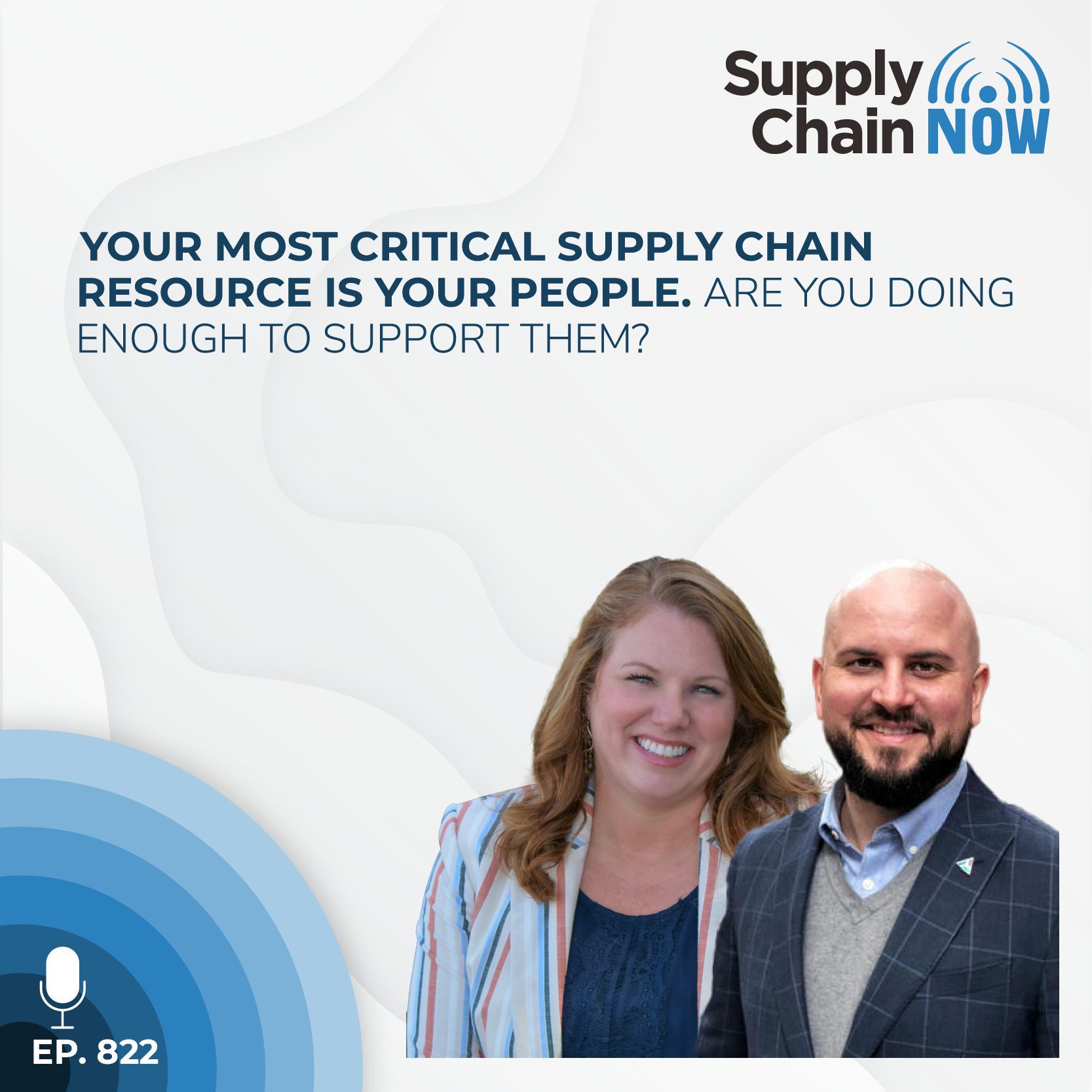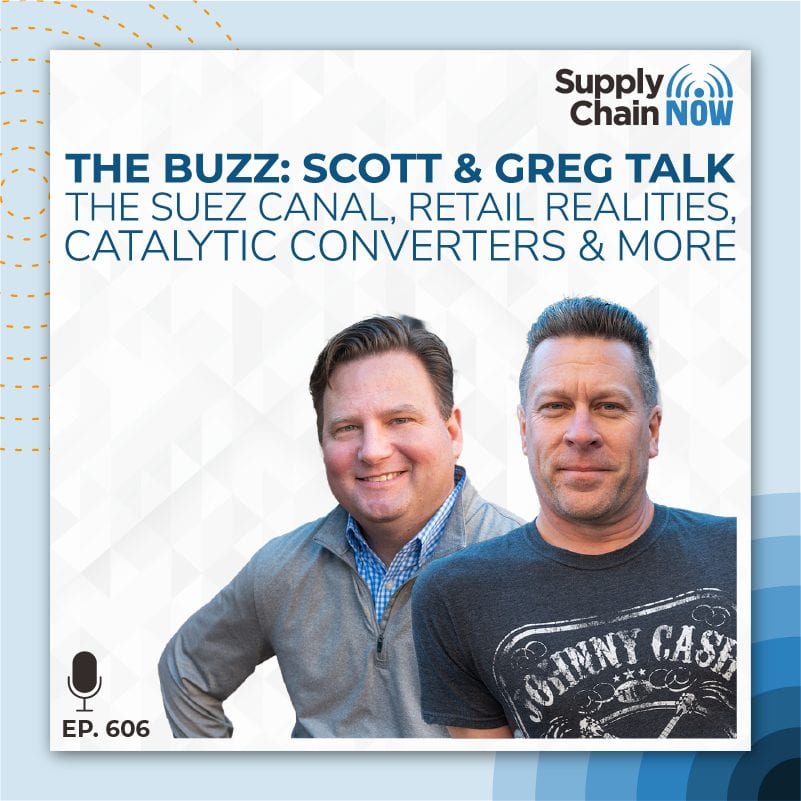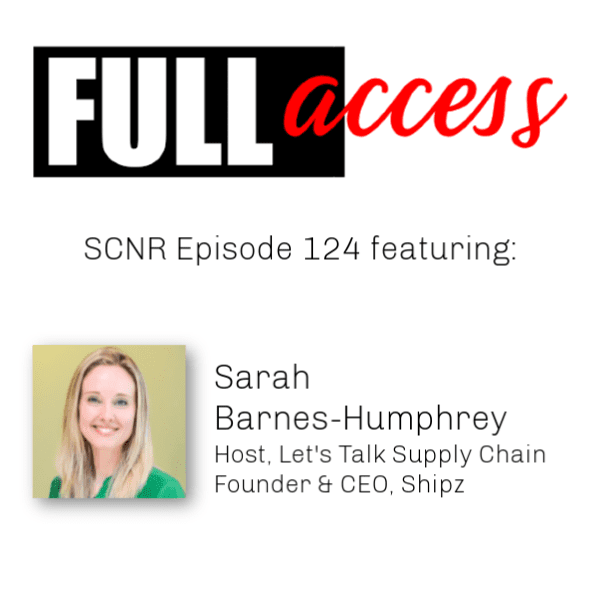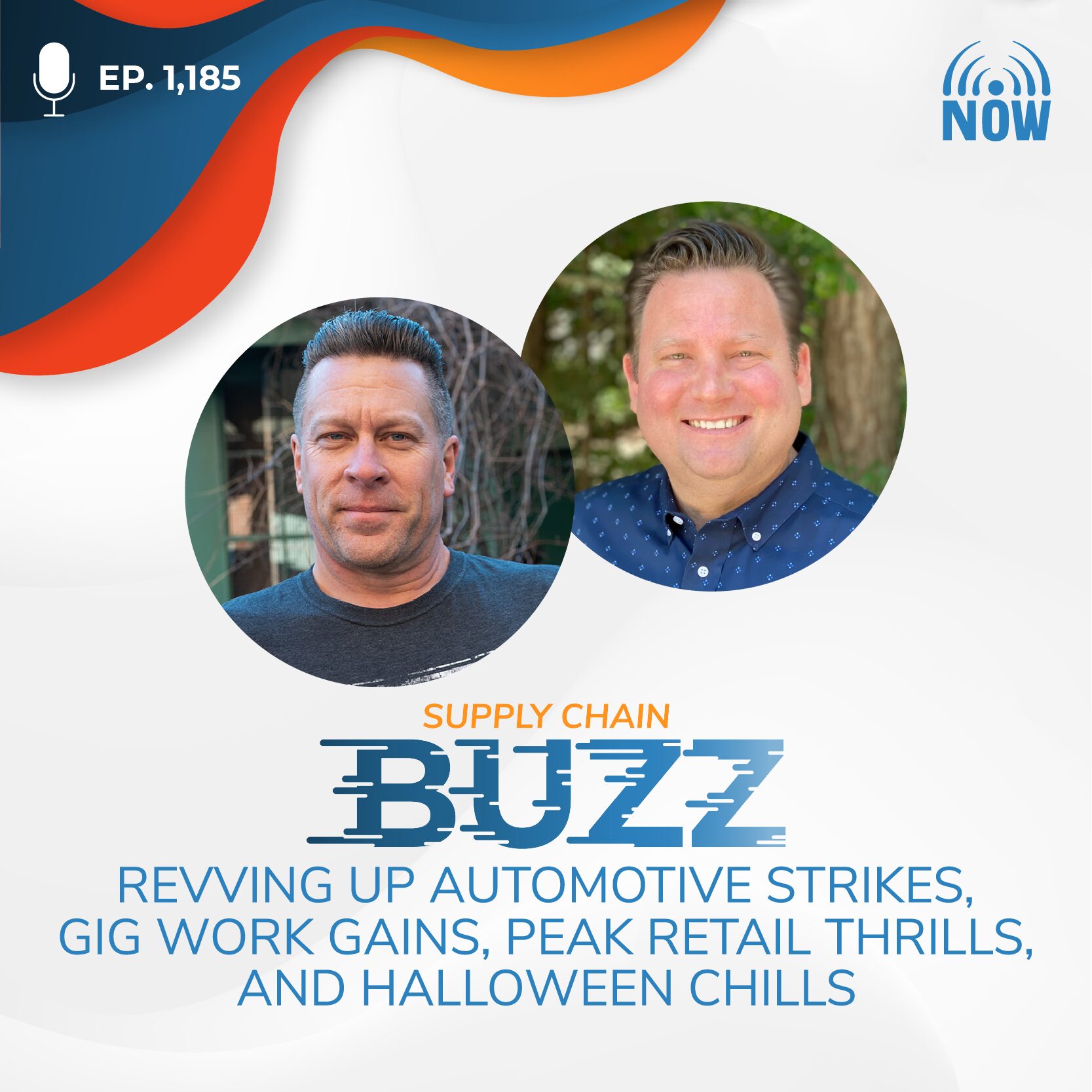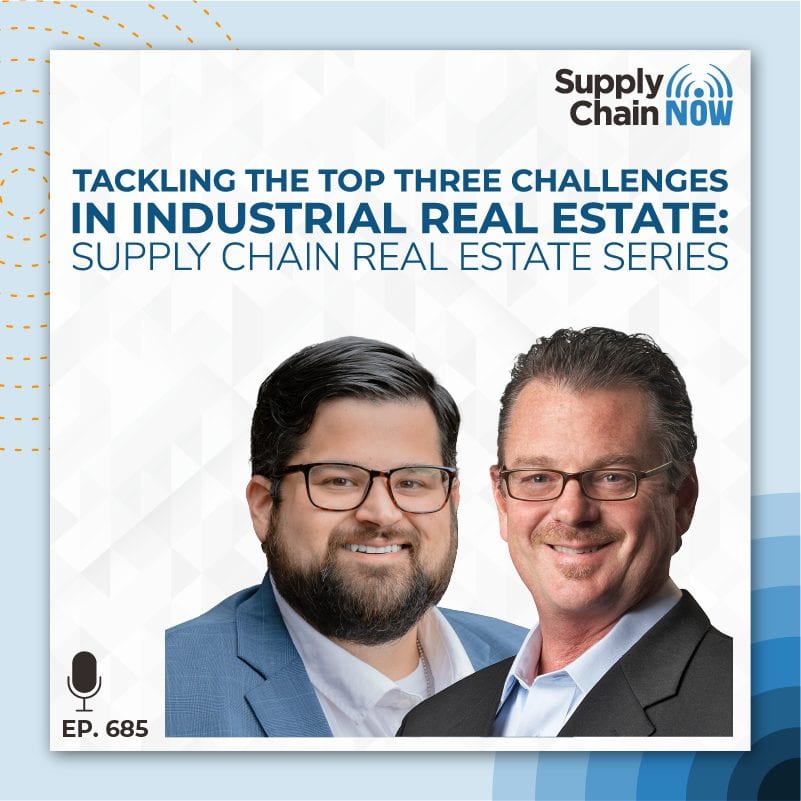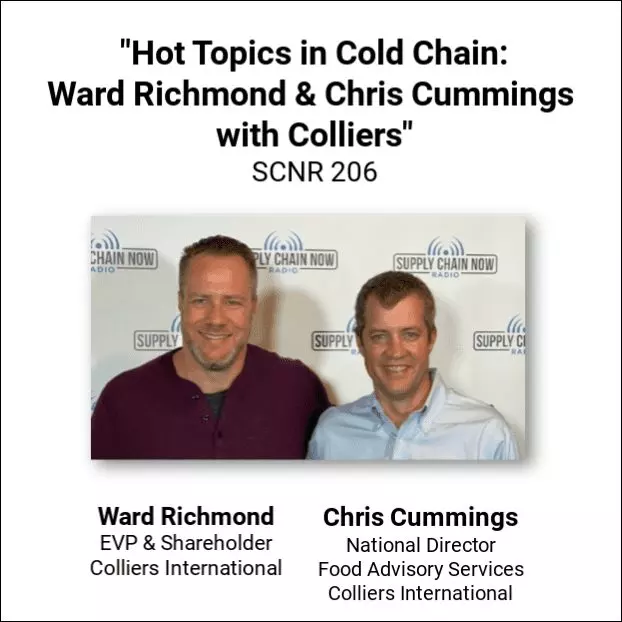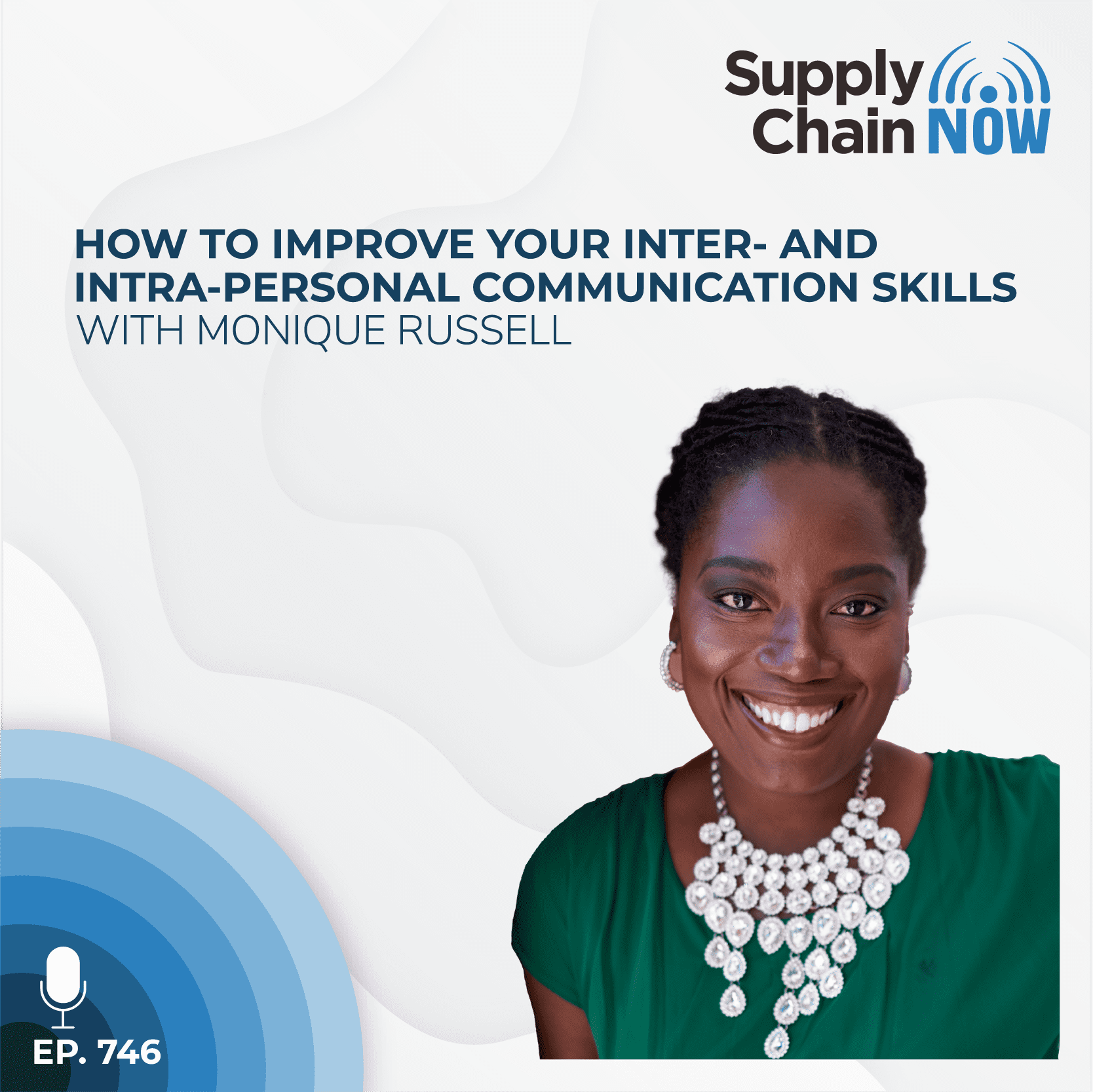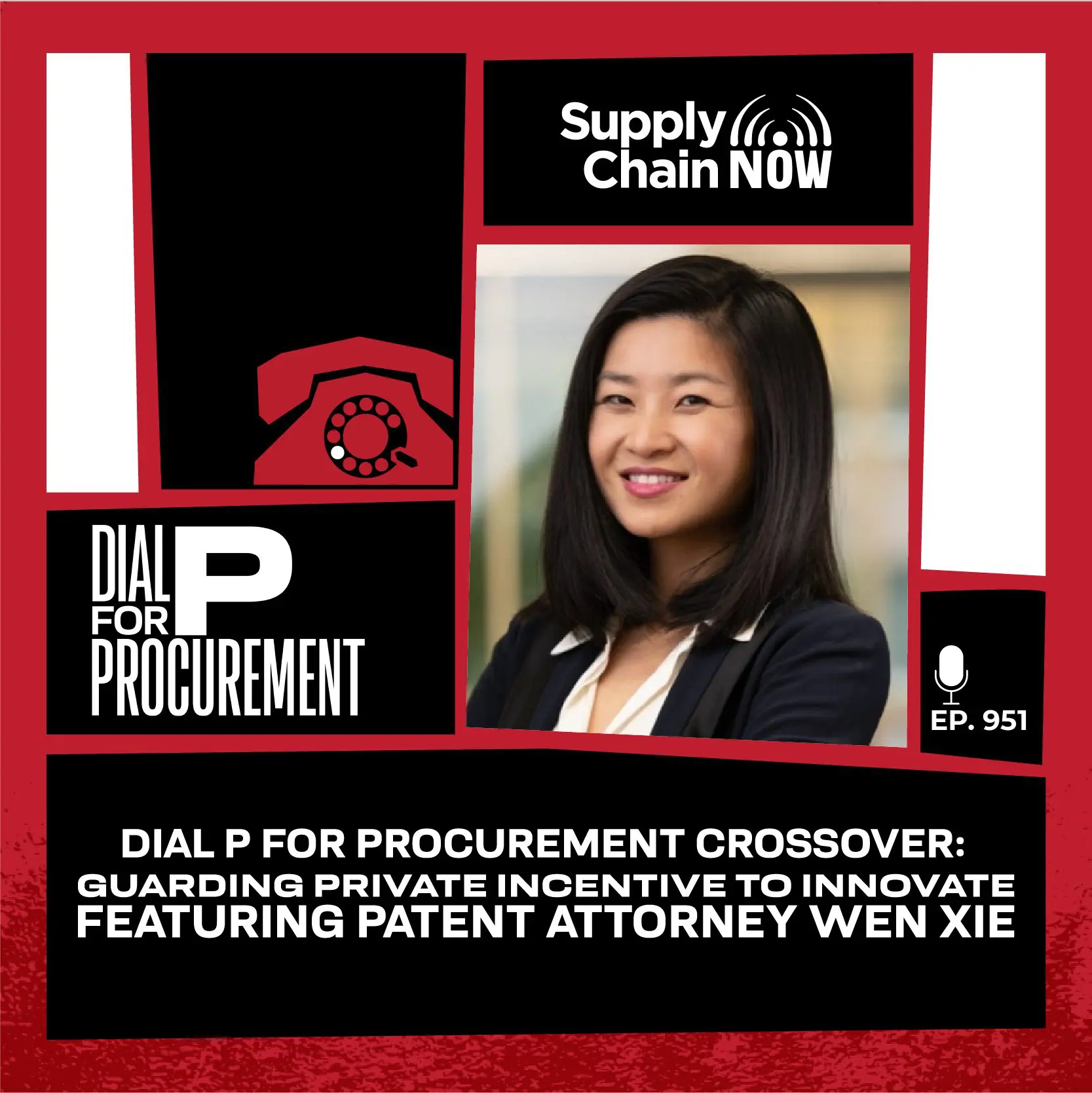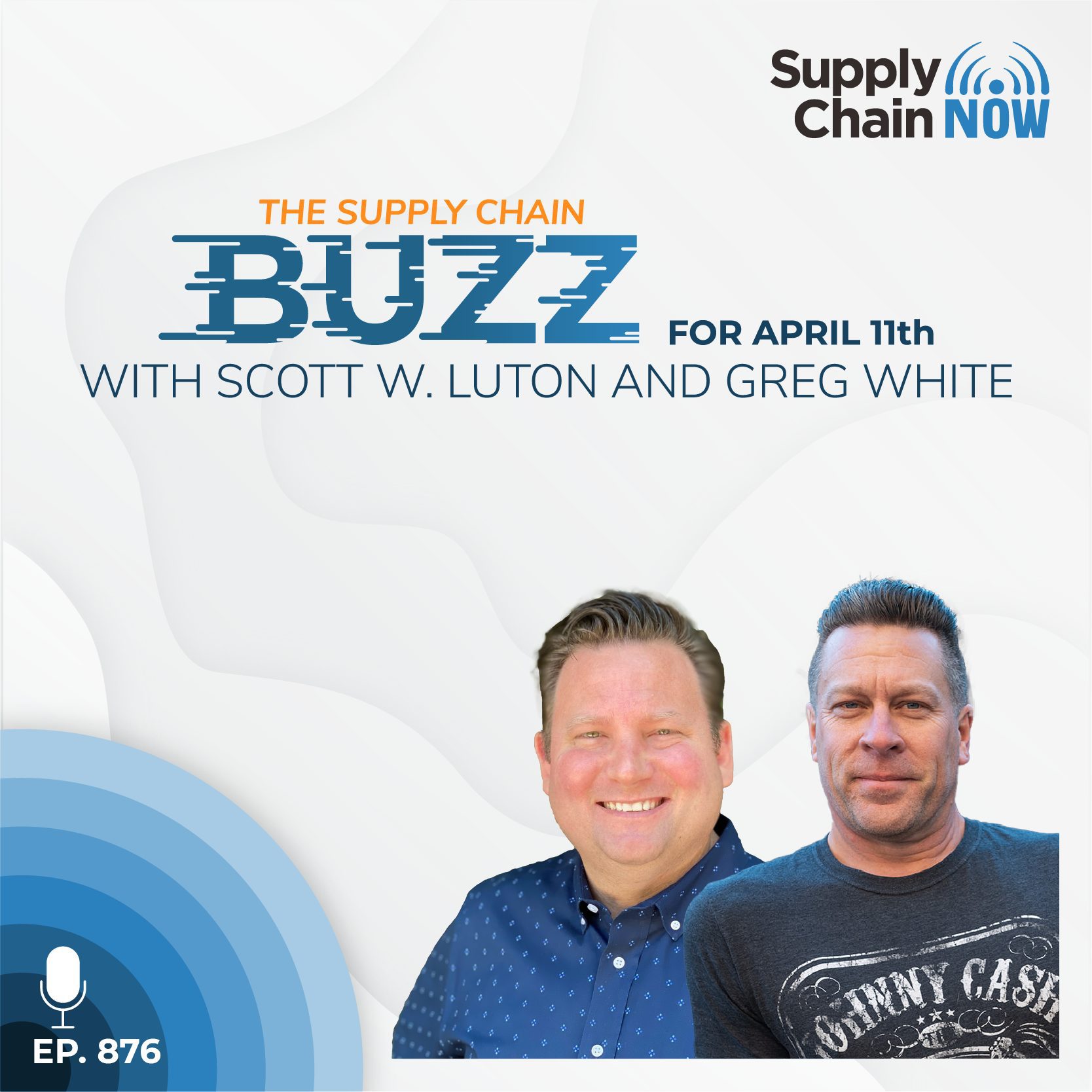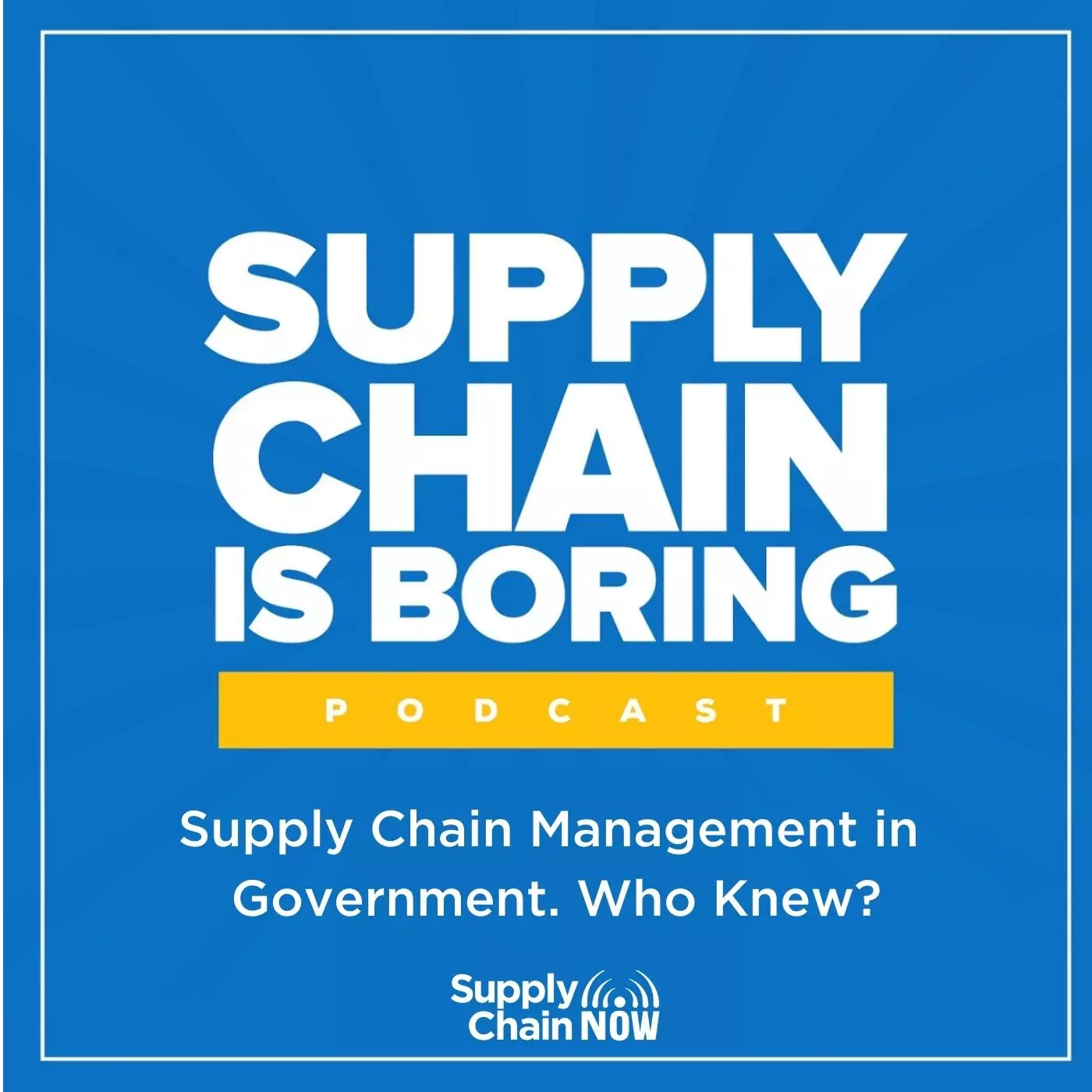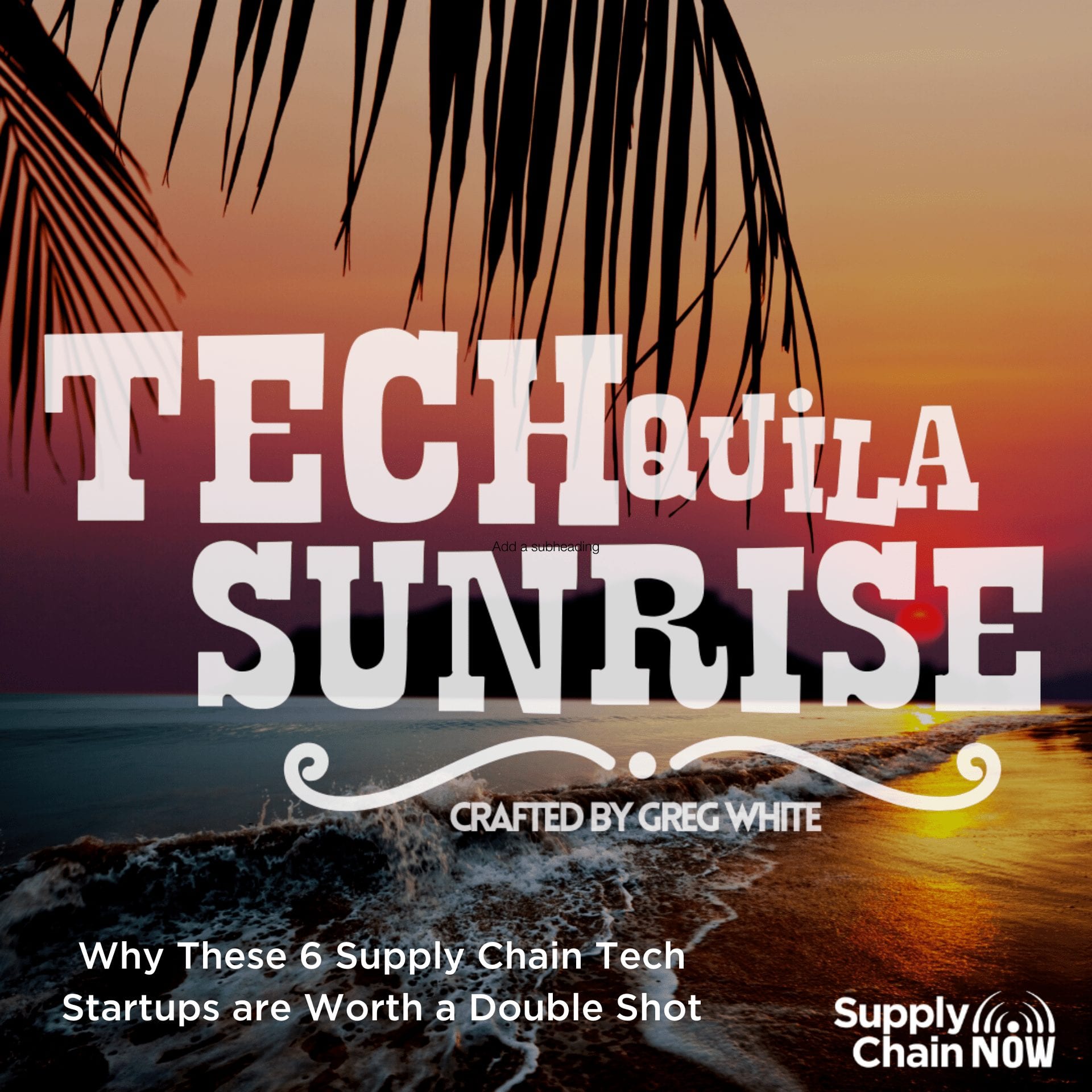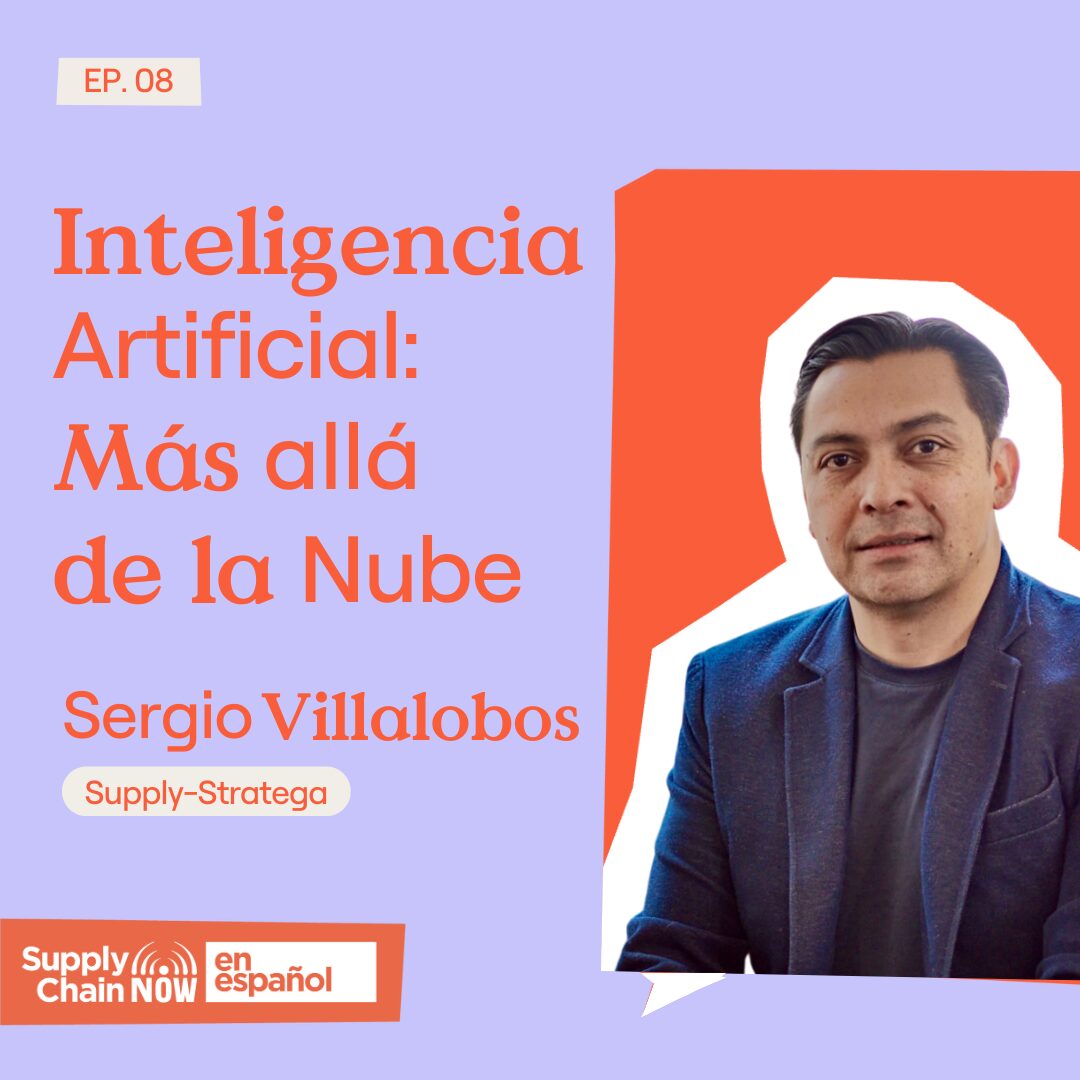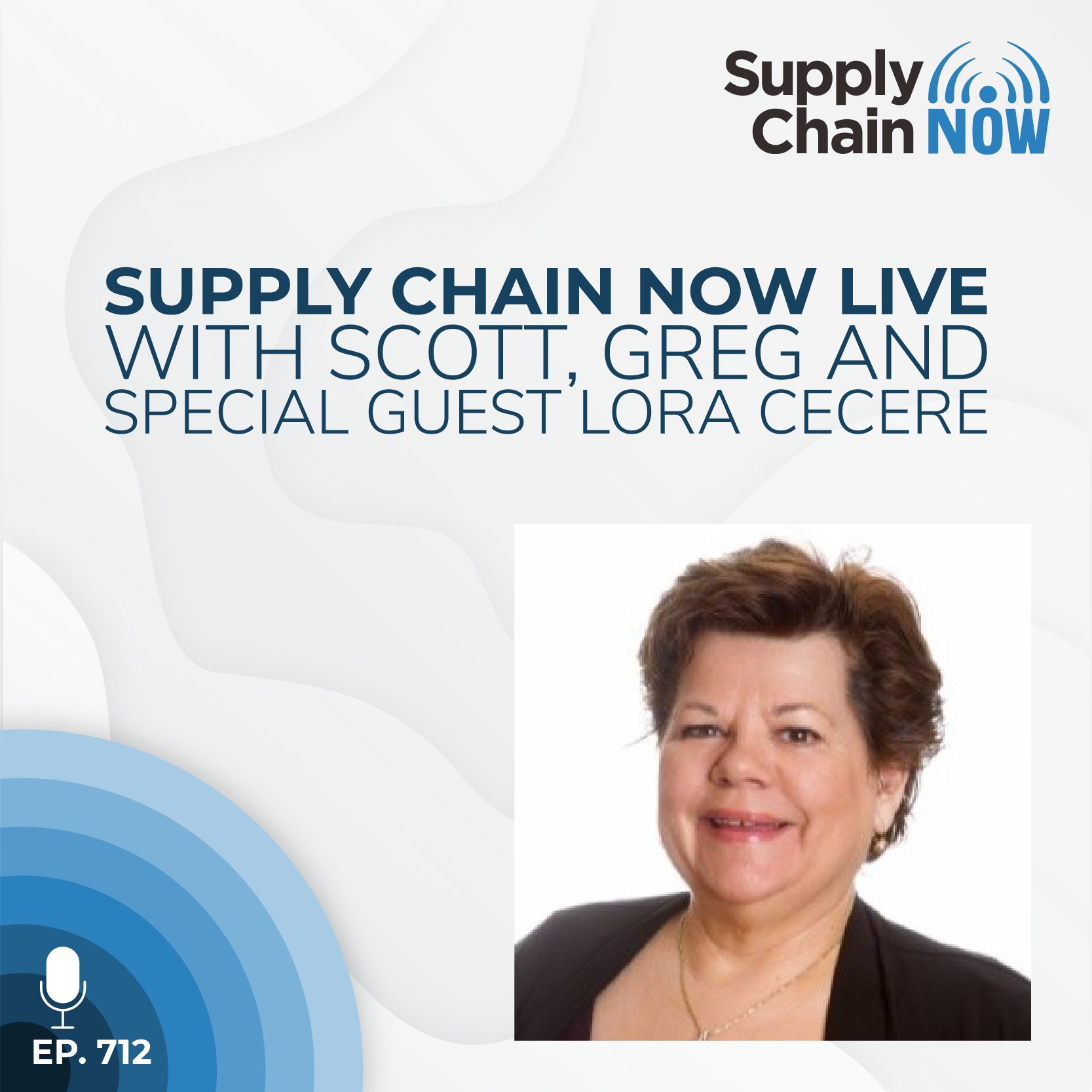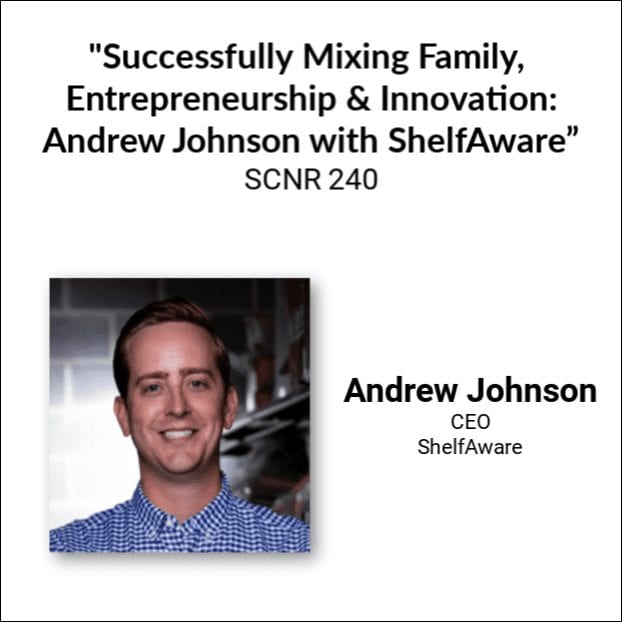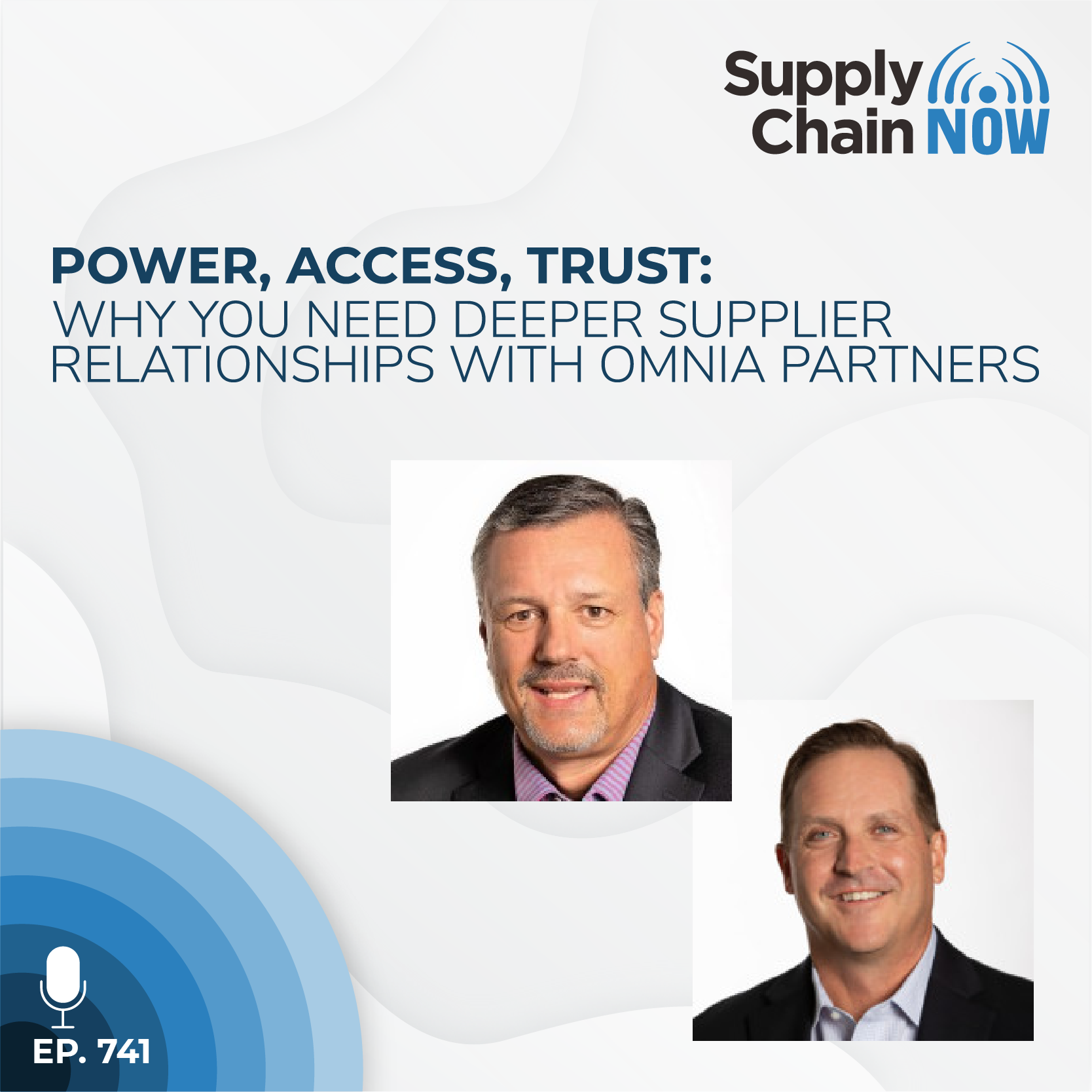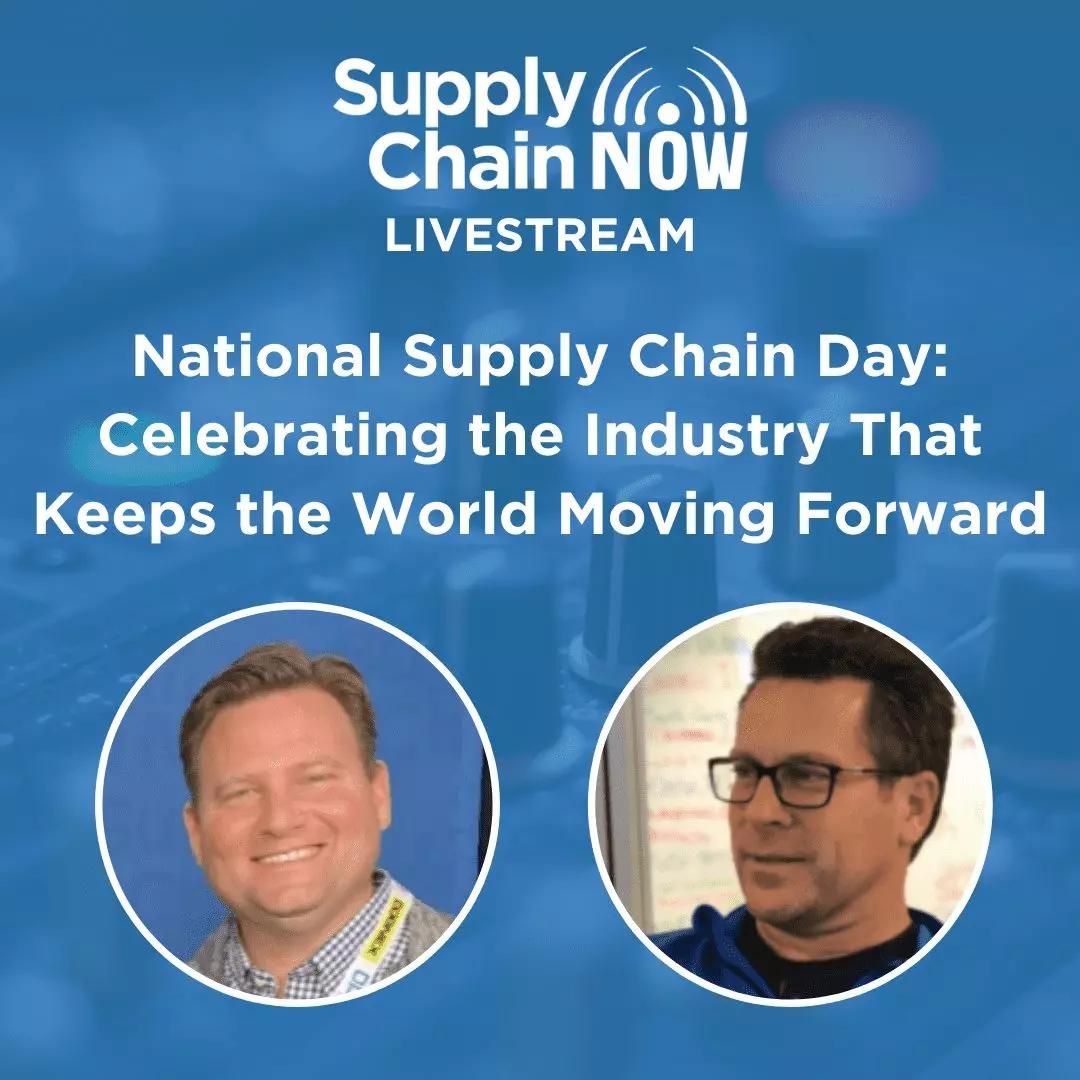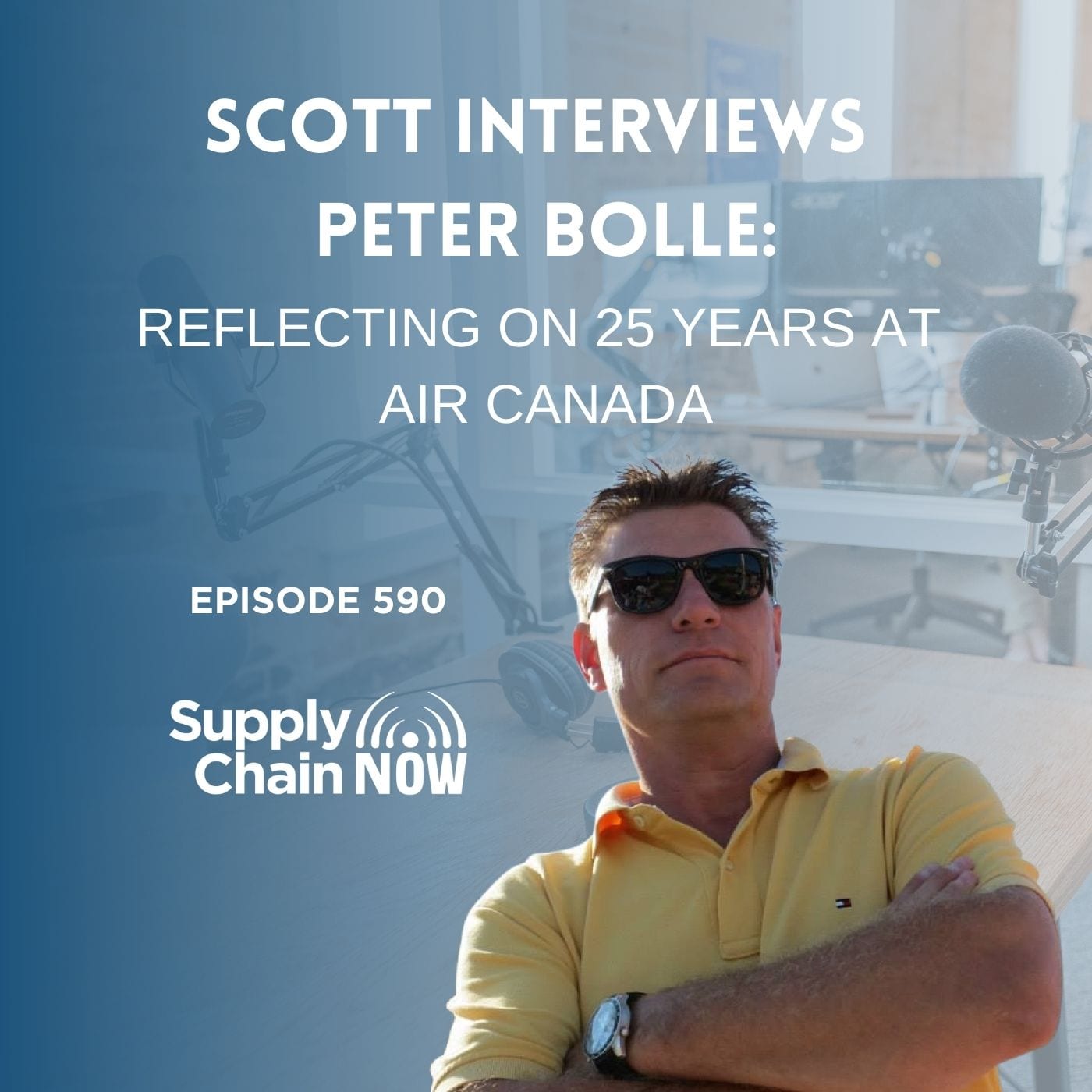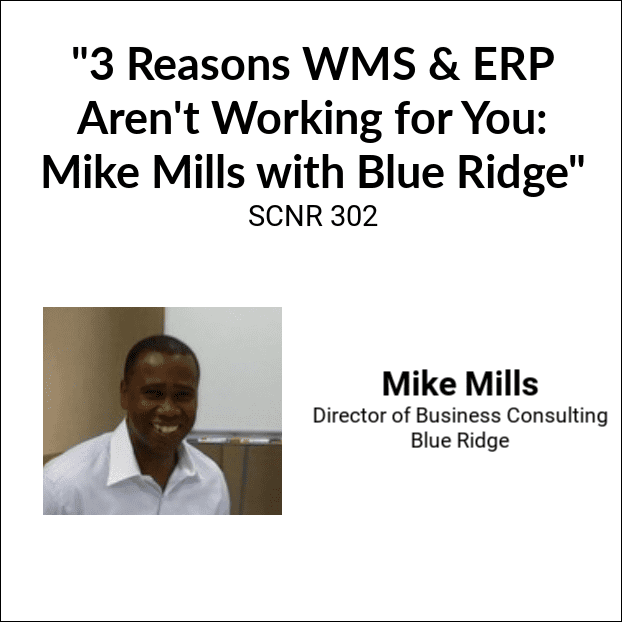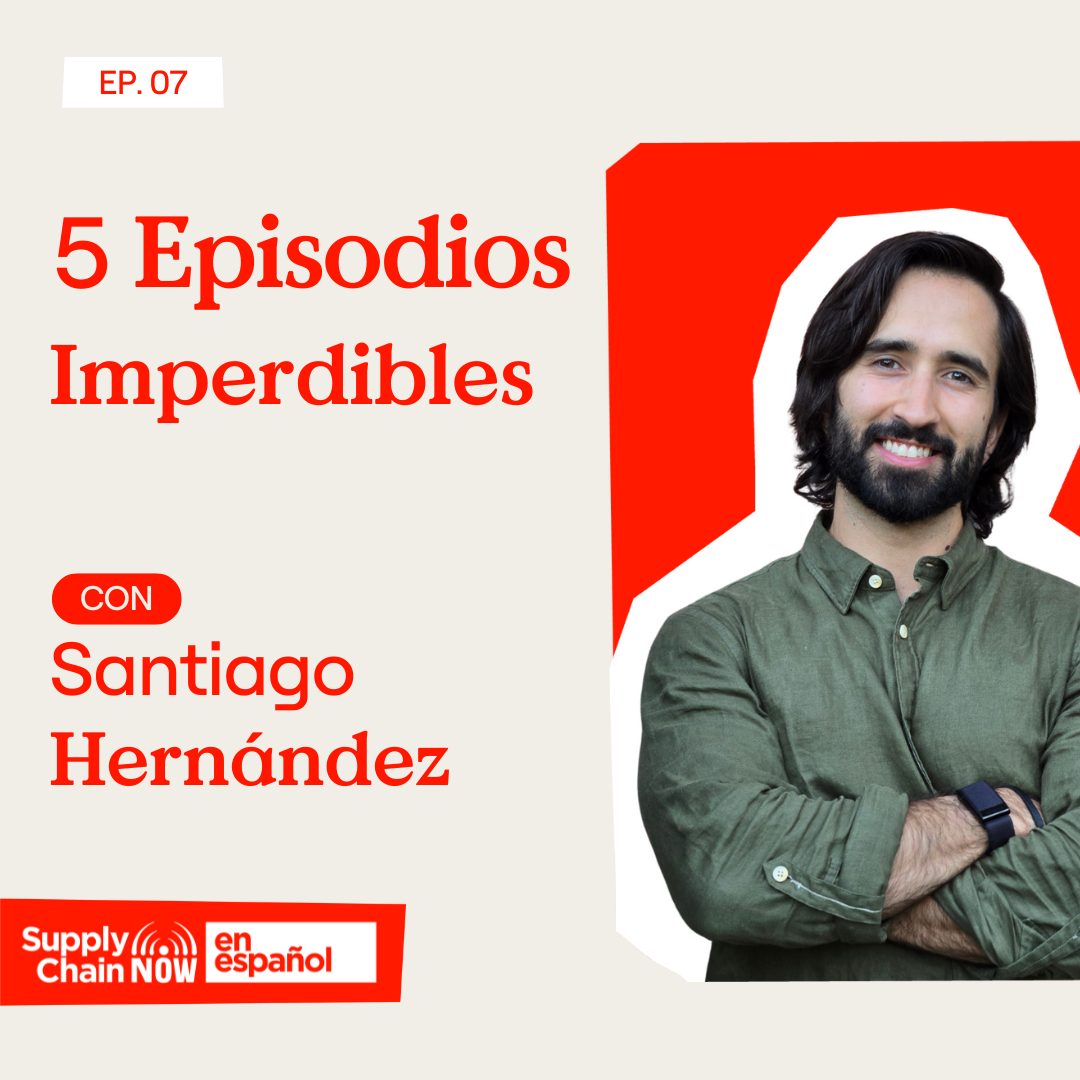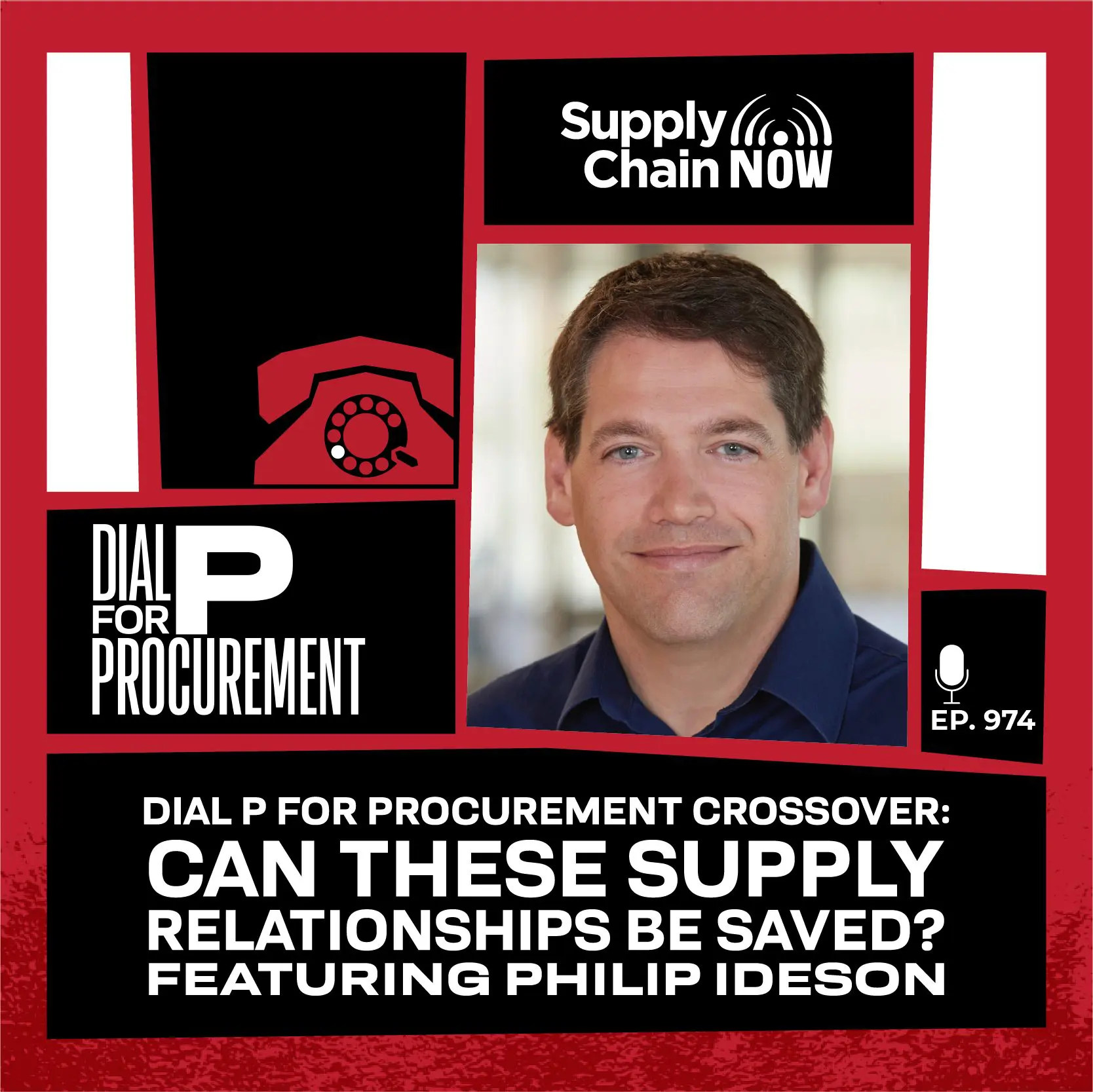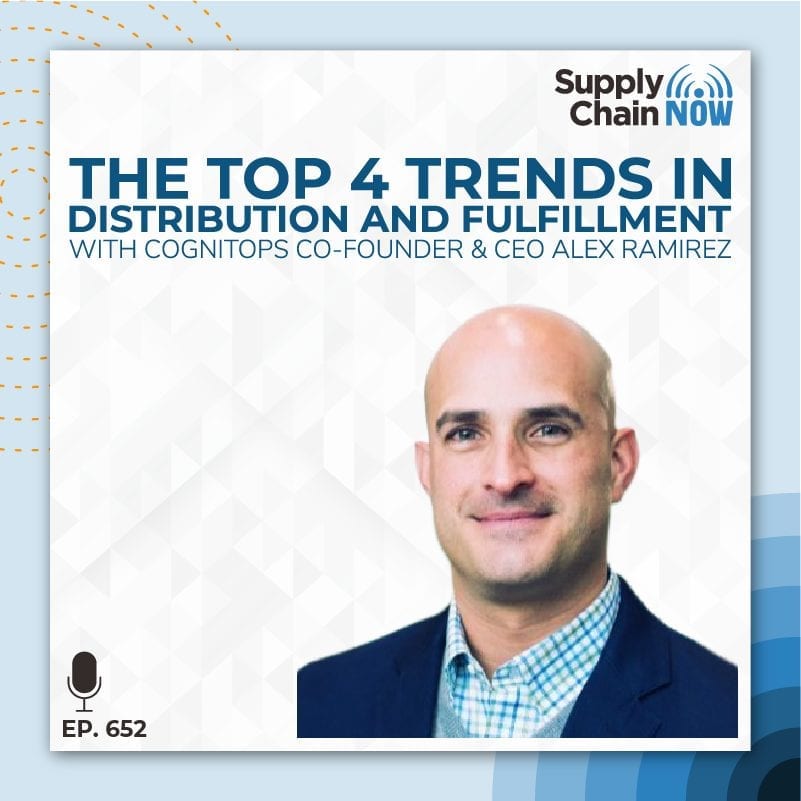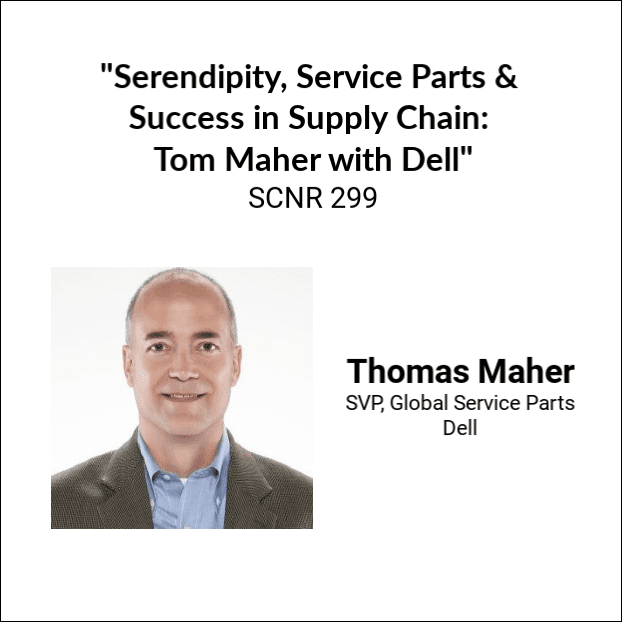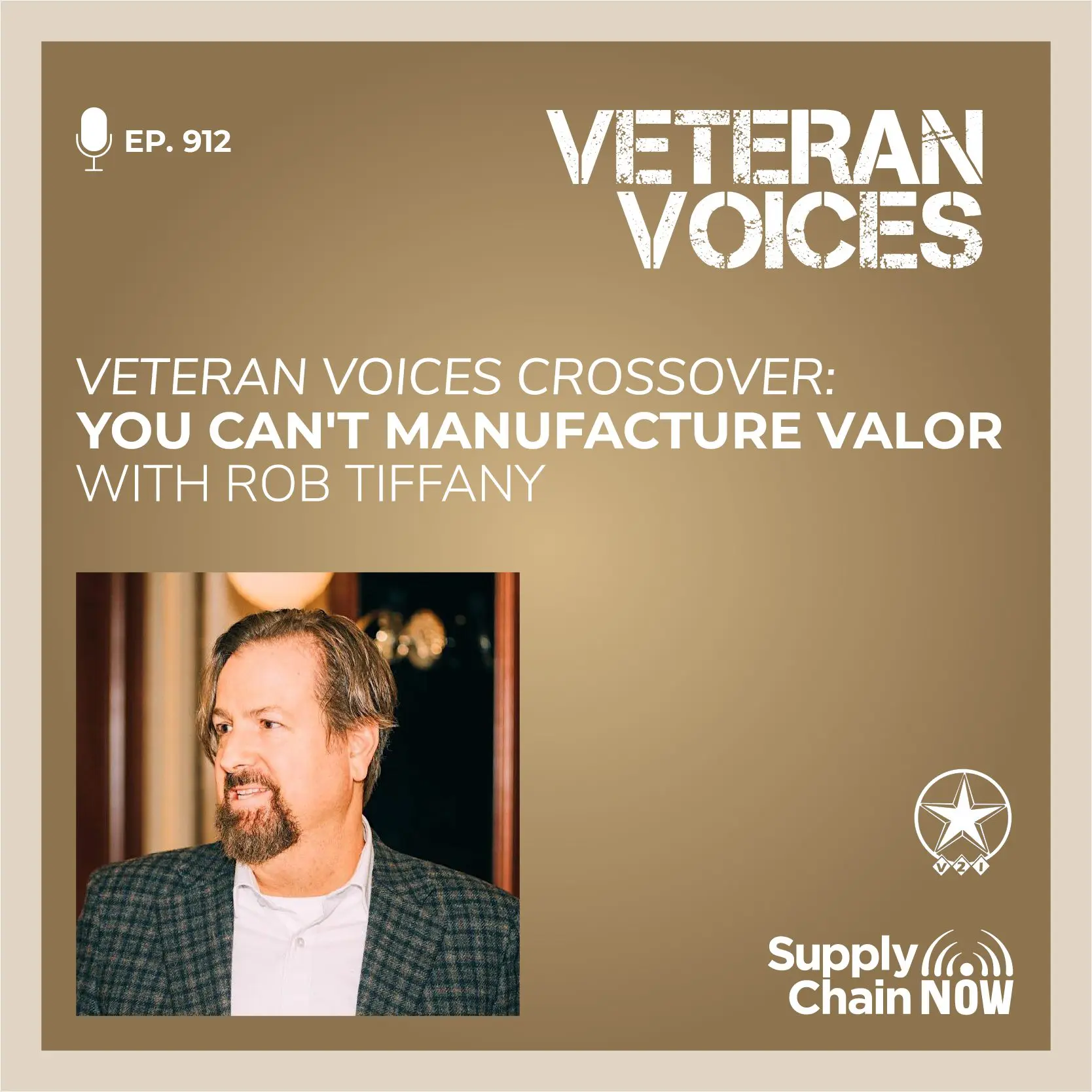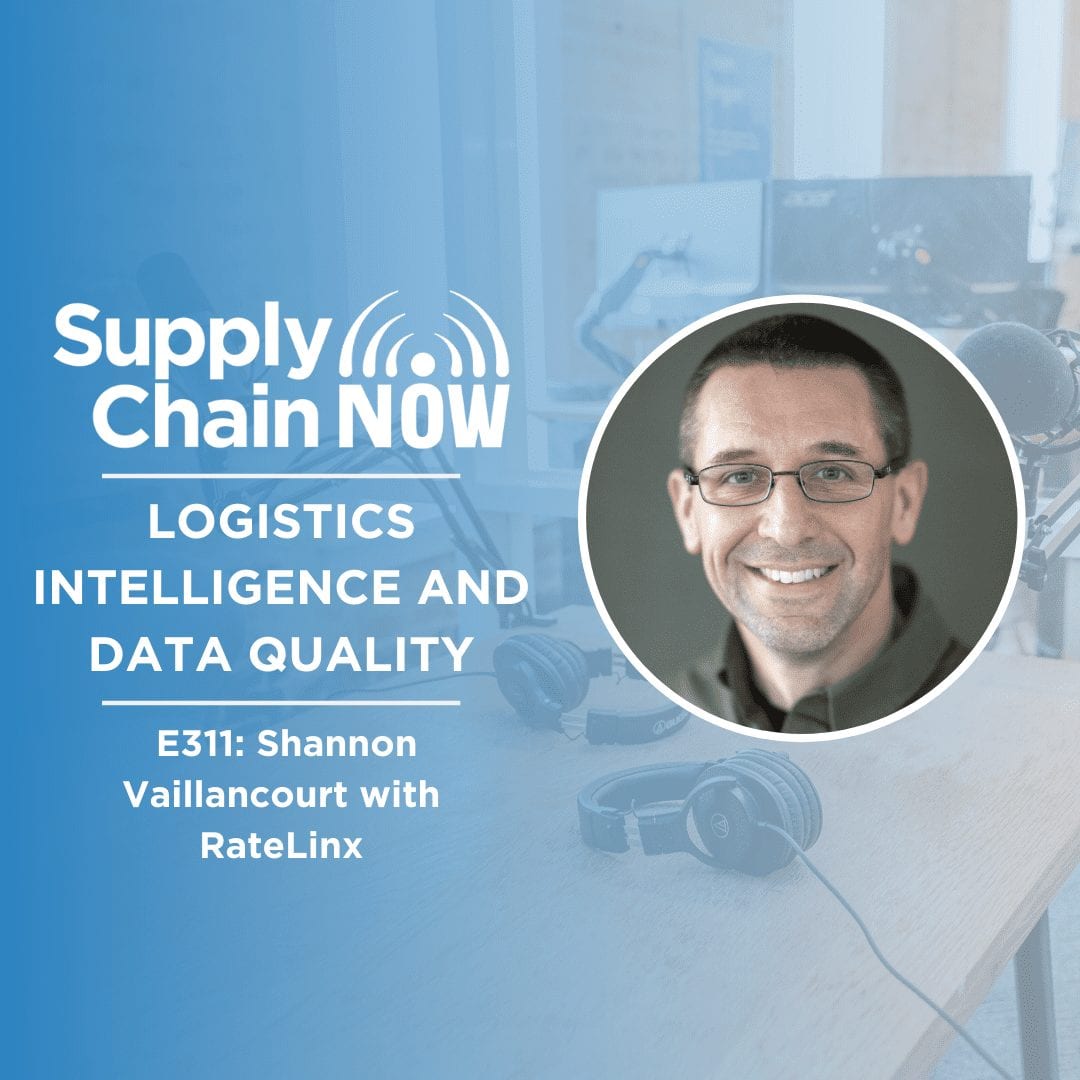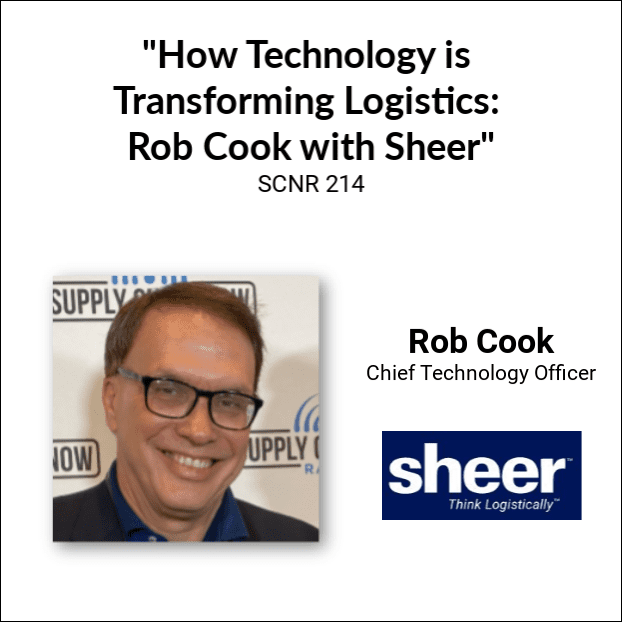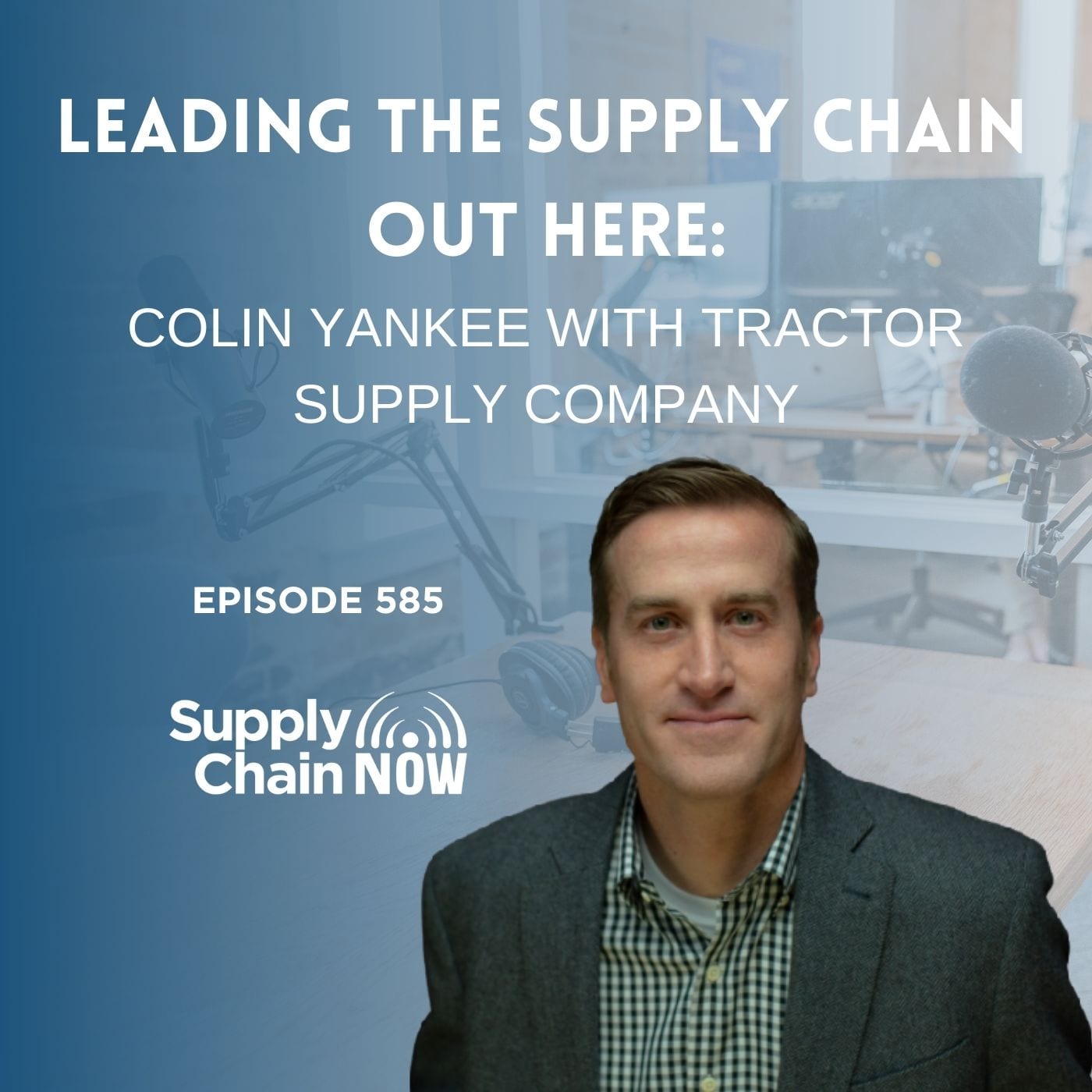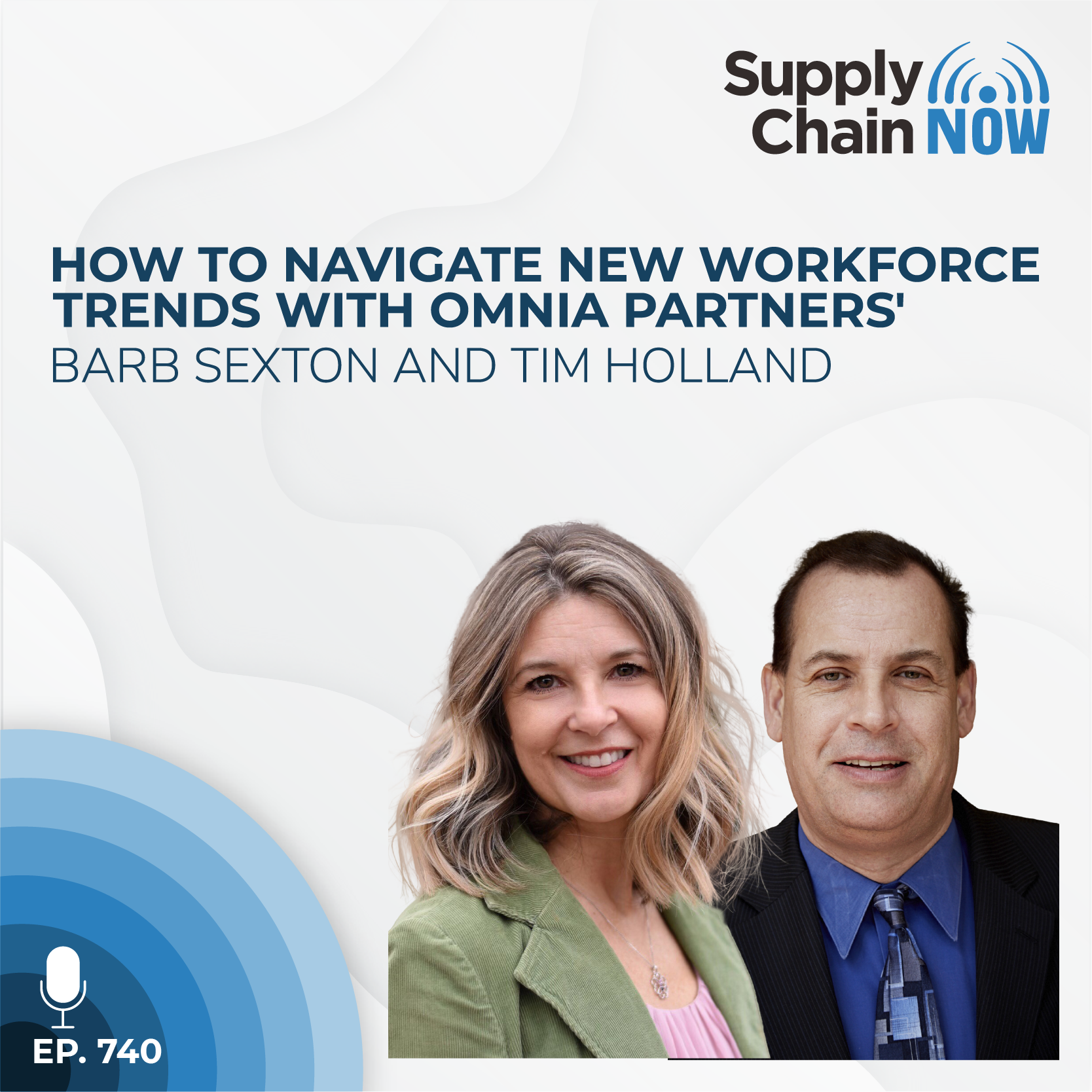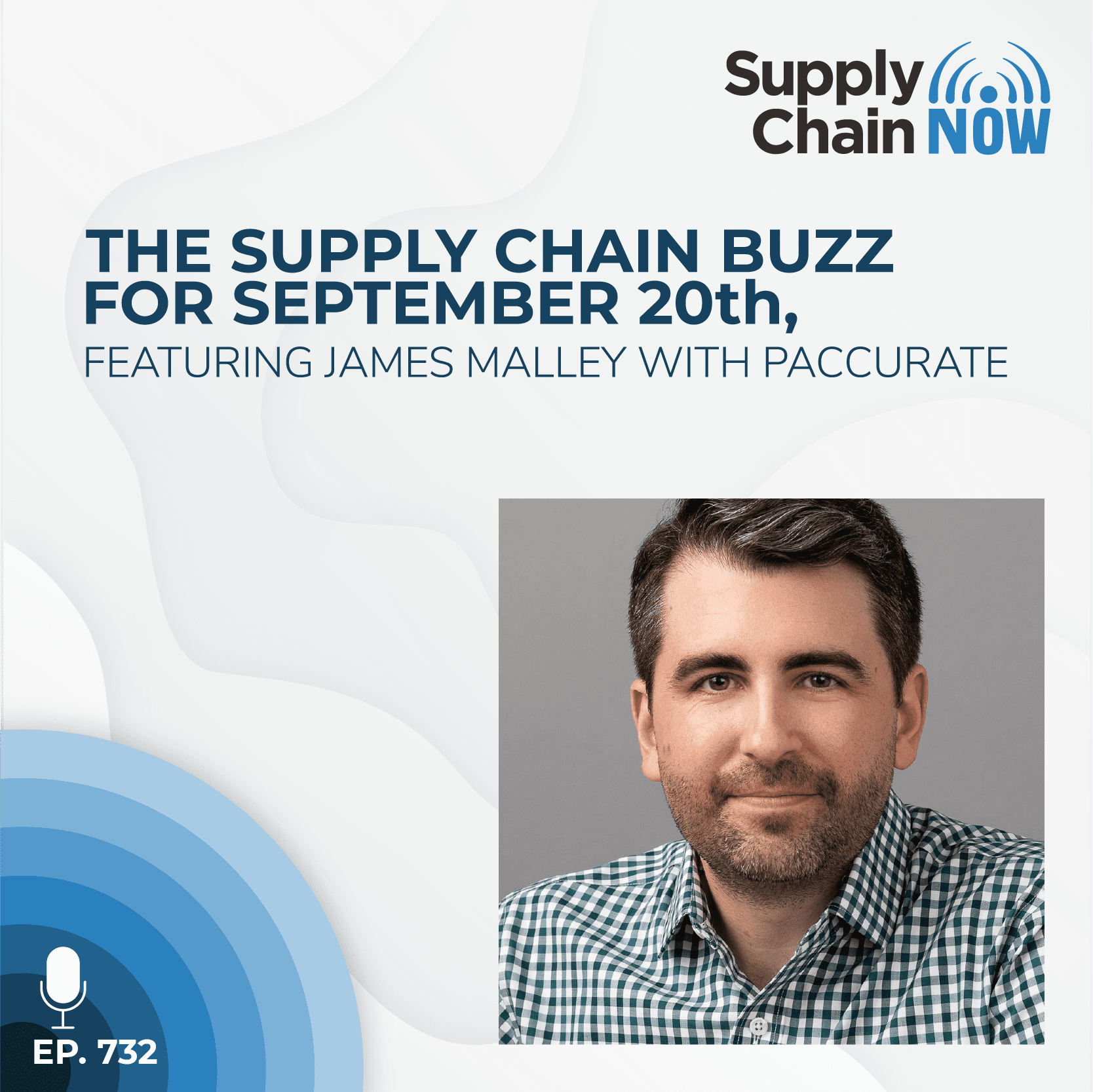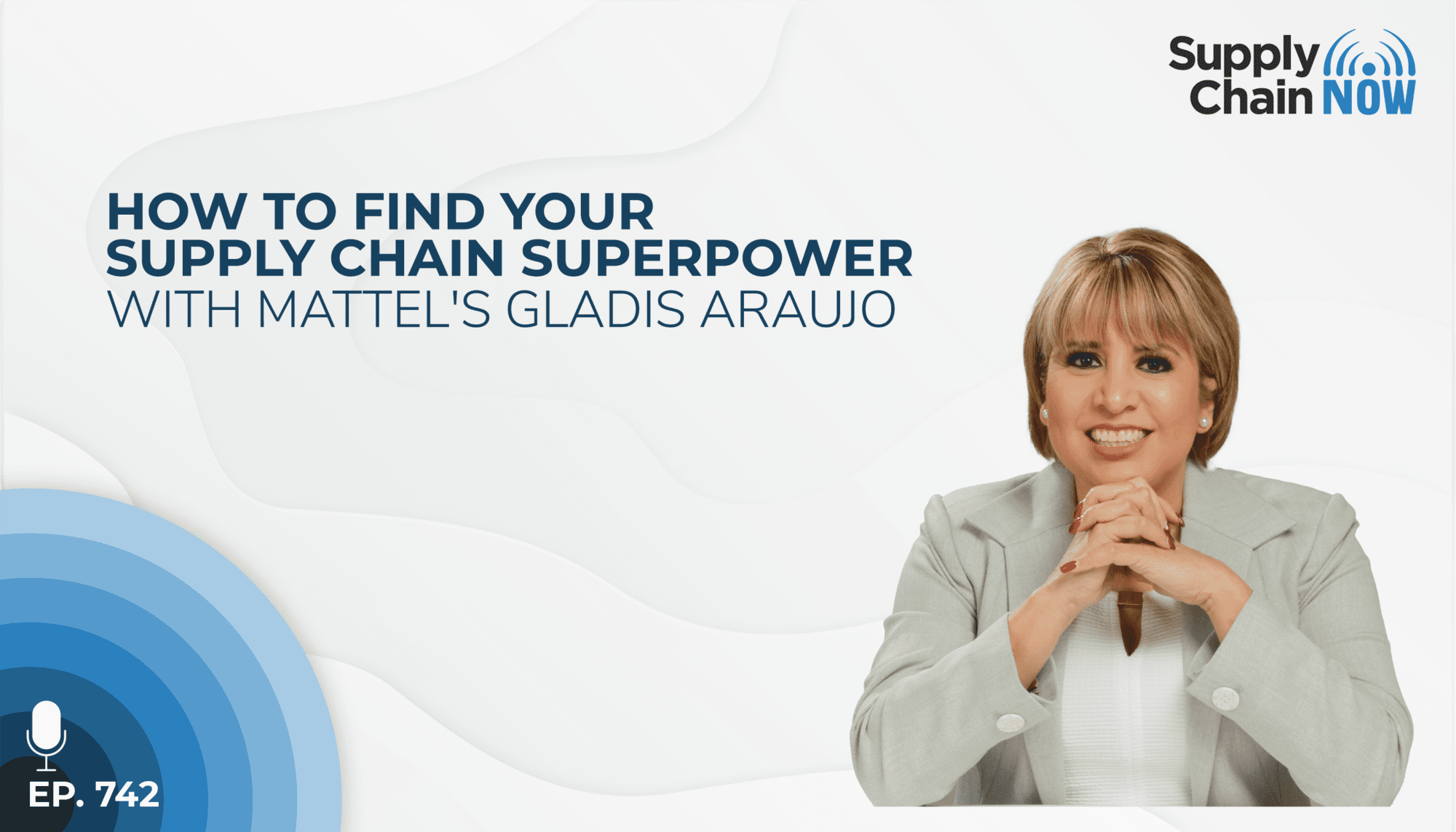
If we want to have a better world, we cannot construct that world with indifferent people. Start thinking - what can you do to support others?
-Gladis Araujo, Mattel
Episode Summary
Are you ready for the “Gladis Factor?” Don’t miss this one-of-a-kind chance to gain wisdom and critical insight from a supply chain veteran, lifelong learner and Barbie quality connoisseur. Gladis Araujo, VP of Global Quality, Safety and Regulatory for Mattel, Inc. joins host Scott Luton and special guest co-host Allison Krache Giddens to share her perspective on the importance of lifelong learning, the two key challenges defining the current supply chain landscape, how young professionals can best adapt in the modern era of work, why producing quality toys is a more involved process than you might think – and much more.
Episode Transcript
Intro/Outro (00:03):
Welcome to supply chain. Now the voice of global supply chain supply chain now focuses on the best in the business for our worldwide audience, the people, the technologies, the best practices, and today’s critical issues. The challenges and opportunities stay tuned to hear from those making global business happen right here on supply chain now.
Scott Luton (00:32):
Hey, good morning, everybody. Scott Luton and special guests. Co-host Alison Krache Giddens with us with you here right here. Own supply chain now. Welcome to today’s episode. Alison, how are we doing?
Allison Krache Giddens (00:45):
We’re doing good. The rain is holding off for once this lovely, uh, late 20, 21 and ready to do that.
Scott Luton (00:53):
I don’t know. I just saw a lobster boat pass by my Metro Atlanta a window here. So we’ve got plenty of it, but it always could be worse and it really is gorgeous right now. So, uh, Alison, I love what you do. You’re one of our favorites here and of course a longstanding repeat guests here at supply chain now. And I’m so excited about this interview that you helped us facilitate with one of your network colleagues. Alison we’ve got a global manufacturing leader, especially in the quality world set to join us here today. And one of our favorite parts, Alison, besides the dynamo that our guest is, she works for a brand that has probably touched us all in some way, shape or form, right?
Allison Krache Giddens (01:31):
Oh yes. Oh yes. I had plenty of these items and I might still have them
Scott Luton (01:38):
Wonderful. Well, you know what, we’re going to let the cat out of the bag momentarily, but let’s, let’s introduce our guests first. So our featured guests is a, is a global business leader with over 25 years of experience in quality and supply chain across four continents in her career, she’s been charged for ensuring quality of some of the brands that Allison are kind of alluding to that we all know and love like the iconic brands, Barbie and hot wheels I had about, uh, seems like an army, like thousands of hot wheels back in the day when not working though our guests, her engine doesn’t stop. She’s founded several non-profits to serve her communities in Malaysia and Mexico. She has received volumes of recognition, a couple of top, including top women, inspiring humanity award for 2018 and 2019 by the global chamber of commerce in Malaysian. And again, that’s just the tip of iceberg. So with all that said, when a welcoming Gladis Araujo global quality vice-president with Mattel incorporated, Gladis, how you doing? Excellent.
Gladis Araujo (02:41):
Thank you very much for the invitation. It is a pleasure and an honor to be here today in supply chains now. And thank you Alison, for the connection. So excited to be here with you.
Scott Luton (02:51):
That is right. You’re you have achieved legendary status with this Gladys already, and I’m so excited to be able to dive in deeper in your journey and some of your POV. So if you’re anything like Alison man, we are, um, we’ve got quite the shows lined up. So Alison, you know, we like to get to know our guests first, right? We like to humanize them and, and kind of have some of their, their personality come out first. So with that said, before I pass the Baton to Alison Gladys, I want to get to know you better tell us where you grew up and give us a goods on your upbringing a little bit.
Gladis Araujo (03:25):
Yeah, I first I know I’m Mexican. I born in and raised in Monterey. This is one of the largest in those fields cities in Mexico, we are close to the border of Texas two hours and I was raised by a traditional metallic family mid-class level. I am the oldest of four brothers and sisters and my, my parents. They were a firm believers about education. And my father always kept saying to my mother the best eh, inheritance that we can give to our children will be a location. Then as a family goal, they were having, um, making sure that we were having a good education in a good university and to provide that he was working always two chiefs. He was a civil engineer in the construction industry. He was working during the day in a chemical factory and at nice in as a freelance project, then he kept very, very busy and he was so, so making sure of something very important in our family that we love, we need to love books and, and learning.
Gladis Araujo (04:36):
And then, uh, back then, as you know, we didn’t have any internet connections or cable channels, not as well. No, I, but then the information available to us, it was only newspapers at the textbooks in the school, few books that you buy here and there. And then I remember one Saturday morning when I was 16 years old, then I, I was working into the living room and then I saw a salesperson talking to my parents and he was showing a Baylor collection of books and encyclopedias and things like that. And I was getting so excited and, and my father, he was that’s the only way he could give us a window of the war, because there was nothing else to show us about what is going on around now. Then he was, I remember bargaining with the sales person because for him that was a fortune to, to invest into, but he made it. Then I remember the first day when over 100 books arrive into my home, that was like Christmas. It was the best day of my, uh, of my life. And since that day I just started reading every single day. I spent most of the afternoon reading about everything science, literate to add and so on.
Scott Luton (05:57):
So Gladys, if I can interrupt just for a quick second, because what you’re describing is that, you know, if there was a stretch in our collective history where door to door salespeople was a thing where they were selling vacuum cleaners or encyclopedias, that was a thing. And one of the things I love about what you just shared there is, um, your dad really wanted to provide you with that information and those experiences in, in one of the few ways you could, and he was working two jobs right by day and by night. So naturally he’s gonna negotiate because those were hard earned dollars that he wanted to invest in y’all’s experiences. So, um, what a cherished memory that has got to be in, clearly you began reading every day as those hundreds of books came in, right?
Gladis Araujo (06:46):
Yeah. Correct. And reflecting about those days in reality, besides of course of my parents inheriting me, I go dedication that in their mind, that’s the way I will open to the world of opportunities. And they were right on that. They inheriting inherit, uh, me the passion of learning and night. I know now a days that this is scale of lifelong learner, it is mandatory skill is, was relevant back then. It is relevant to that more than ever. Why, if you listen, of all the researchers, the researchers about the future of work, the jobs of the future are not even here today. Then you need to be learning and relearning and transforming yourself every single day. Then one of the top critical skills for the future is to hold the bay, the life long learning lifestyle. And, and I can tell you by experience of over 30 years in the working environment, in a global business, that this has been a key success factor. Not only for my personal development, also for my professional, all in different roles and in different parts of the world, because I have to be learning and relearning newest skills, as well as, as new technologies and new threats.
Scott Luton (08:14):
I love that an industry relies on that constant learning. And then once you learn one day, you’re, you’re challenging it almost the very next day. And that’s how we move. We move forward. And I want to bring Alison back into this because I know I just met Gladys, just, you know, uh, what 18 minutes ago, but what I know about Alison, uh, from our conversations and work together. And of course, if she’s a great follow on social, she reads all the time. She reads books that are about, uh, well, they’re on your pay grade level, Gladys, which is about 17 above mine. So Alison, if you would, uh, I think we could spend the whole hour with Gladys kind of own her upbringing, but speak to Alison your take owned, constant learning. And then from there, we’ll dive into Gladys is a professional
Allison Krache Giddens (09:01):
At no, that, in fact, it’s funny. I took a note about that because I know that I’m going to pick up on a lot of fun, new things about Gladys. So I’m writing things down over here and, um, yeah, the lifelong learner thing is vital. There’s a great book out there called framers. Um, and I know that there’s a subtitle to it and I don’t know the author off the top of my hand, but I’m sure that you could figure it out. And it’s all about learning new things and, and, and gaining those experiences. And as you learn new things, your brain is creating new frameworks so that when you come across something else that might not be identical, but your brain is constantly searching for patterns. So your brain will then say, oh, I’ve kind of seen this before, and this is how this works. So the more you learn, it’s not as though you are just keeping to that one little box of new learning. You’re ultimately you’re growing that bigger and bigger. So that’s, I mean, hearing glass, talk about that. That’s good. Do you think Gladys from, from the things that you, whether it’s the a hundred books that you read, that your, that your dad brought in, um, do you think that that kind of dovetailed you into a particular profession? Is there something that you can recall that, that really drove you into that start of your professional journey?
Gladis Araujo (10:20):
This is a very nice question, and I will think everything somehow shaped you even a book of art in a book of literature. I think to say something very important, it helps you to make connections. Then when I’m doing like engineering work, because I’m a chemical engineer, I love math science and stuff like that. That creativity is 63 million necessary and, and reading and being exposed to art. It enlists you that creativity, and it helps you. Then I see that. I always tell, um, junk joined generations that they need to try to learn about everything. They can explore everything. They never know what is the superpower coming. They never know what connection they can help to resolve a critical problem just for exposing yourself to something else. How many times you are stuck in a problem. You just go out for a walk and then things start coming into your mind.
Gladis Araujo (11:25):
I see the same way it’s happening with books. And, and I just want to add one additional comment on what you said. Eh, I love what you said about frameworks. And of course I will be looking in the book, but I also has a recently reading a lot of research about dementia and as high med. And, you know, nowadays is the, the sickness of the century because everyone is living longer. Even if you don’t have in your DNA, these degenerative, eh, sickness, you may eventually get it because it’s not a process in a human. Then also learning helped you to prevent or retard the, the, the issues about the Alzheimer’s or dementia.
Scott Luton (12:11):
That’s such a great point. So by the way, framers human advantage in an age of technology and terminal a, and I’m not gonna pronounce the author’s names cause I’m going to butcher those, but you can easily find that on Amazon or your local bookstore. And one of the quick followup point that both of you are speaking to in analysis, I’ll back over to you is when you learn about other things, other than what you’re most passionate about as you’re speaking to Gladys specifically now, you’re, you know, math and science, what were things you were passionate about? Things you’re great at, but I love how you put it about learning about the arts and other non-related things, because it gives you different lens that you see your gifts and you see your strengths through that. Then you can help communicate that more effective effectively to others. And you’ll see core problems differently because you’re more well-rounded. And it really, so that, that, that perspective that we’re all, we’re all after kind of broadening and, and investing in, um, uh, by going outside of those guideposts is a it’s, it’s a big, healthy, uh, aspect of becoming more, well-rounded more effective as leaders. So I love that Gladys, okay, Alison, where are we going next with our different
Allison Krache Giddens (13:23):
So in kind of bringing all of that together, and I know we took a long time to get here to talk about your current role, but a lot of this has gotten me thinking about a friend of mine, Ron Shanker, out in the UK, he’s an engineering design specializes in sustainability and engineering, and he tells young people to think about learning and your, your role in life or your, your career path instead of the old term, I’m a Jack of all trades master of none. If you’ve heard that, instead of thinking that way, think of it, Jack of all trades master of one. And he says, you think about like a T and think about the breadth of learning that you have that goes across the top, and then the depth of learning on one particular thing. And it get it got me thinking, looking at Gladys as bio and just knowing what I know about where she’s and her never-ending list of, um, of degrees and, and, and organizations she’s a part of, but let us, can you talk about kind of that, that thought process of learning all that you have and have learned and learning and what you, what you’re looking at next, but, but ultimately focused on what’s your current role?
Allison Krache Giddens (14:39):
What does that look like every day? What’s next?
Gladis Araujo (14:42):
Yeah, my, I have, uh, I would like to chat about two current challenges that I’m facing right now in my current role. One is about digital transformation and this is kind of responding to all three of your questions are concerned, what I’m keen now, what I’m doing now, where I’m going, or what I’m learning and related to me, of course, I didn’t born as your news since the beginning in the digital era, but I, I, the beautiful is that I have seen the grow since day one up to now, and I have been to keeping myself updated to this level then nowadays, eh, one of the projects that I’m working is the global digital transformation is specifically into the quality at Aetna. Nowadays. I see that is the perfect time to do so, because even if we wanted to do it before we didn’t have the technology and the tools and interconnections that we have today to do it nowadays, majority of the businesses, of course, many of them are very advanced, but I will say in general speaking, we have dispersed systems.
Gladis Araujo (15:52):
We have been incorporating technology in different parts of our business processes will be even out to [inaudible] in manufacturing will be X software in the technology, in the lab testing or in this other area or in this other area. But we didn’t have the technology that the it solutions that will help you in one single platform, eh, to, to make sure that all the systems are speaking to each other. And also our globalization having like over 100 locations with many different activities going on. Can you imagine the beauty in just one dashboard you have like that, all the information at a glance of what is happening in everybody’s single manufactured inside commercial site, and be able to take decisions faster, to respond faster to the continuous demand of our consumers, because the consumers, they have a board and they have changed as well. Then we need to keep that focus.
Gladis Araujo (16:56):
Then it is a challenge, but it’s a very passionate challenge because you have to embrace technology. That is a cultural change aspect in this process because people needs to adapt. But the way I see it, it has been that always, even in the manual process, when you were changing, not ISO 9,000 to ISO 9,000, they need to adapt. And they will say, oh, it’s [inaudible]. Yes, it is. But it happens that when we start with the ideas, more like the solutions, it was the same way, but now it’s an, in a larger scale than a now I’m working on that transformation. Very excited
Scott Luton (17:37):
Before, Hey, Gladys, can, can I ask you a question really quick? And I am not a quality expert, so let’s just put that out there. I need to wear that as a t-shirt maybe. So, you know, you spoke to customer because they continued to be ratcheted up for a variety of reasons. Right. Um, and then you also mentioned ISO, right? Where, um, the grand standardizer. Right. Um, how, how does, um, can you re really quick for the lay person out there that may not also not be a quality expert? What is ISO and as a quick follow-up there’s ISO, is it living and breathing to take into account, you know, the changes overall business environment and what folks come to expect when it comes to?
Gladis Araujo (18:17):
Yes, I should. I thousand is normally juice in the manufacturing process, eh, for the standardization of all the activities, then you have to have documented everything that you do. You have to have records of everything that you do, but that is incorporated into the standard, the best in class practices that will assure that you constantly will deliver a quality and safe products to the market. Then nowadays in the beginning of my early days, very few companies were having nowadays, if you don’t have it, you don’t have the business at all majority of the retailers, especially on the consumer goods. And they will be asking for that, including the automotive industry, the 40 industry, the medical industry, and you name it, then what is this new systems are doing? Like the QMS platform that is called enterprise quality management system. They are two things doing, of course the ISO 9,000. It is integrated there, but also, eh, they have been evolving as well. And then the best practices in the market for every single business process. And also integrated that meaning that maybe you are not having the best in class corrective action process, meaning to resolve any customer complaint in a, in a very targeted way or efficient way, then the methodology to do root cause analysis, corrective actions, preventative actions will be embedded into the EMS platform.
Scott Luton (19:49):
Gotcha. Thank you. Thank you very much. I appreciate that. And you know what, Alison Gladys, clearly I like how she keeps, she describes that at, at my level versus a, you know, global quality executive level. So thank you very much for that class.
Gladis Araujo (20:07):
Okay. Then any other question I was going to share another initiative that this is, this is also a, a global trend that is happening. I think everyone after the pandemic gr especially do that, you are in the supply chains. Now, do you know that there has been tremendous disruption around the globe, especially on logistics and that’s has been increasing significantly our lead times and our price and our business profits, and somehow is, has been hidden our consumers. And also you have seen that a lot of consumers with companies were very localized in a specific areas, could be only China or could be only displaced and not necessarily with the new, eh, way of businesses. Behaving will be the most. It’s my way to go. Then one of the trends is that we need to be closer to our markets. Then if companies are seriously rethinking where they are manufacturing, the goods and service, there is maybe a premium on the manufacturing plate, maybe in Mexico, beef, besides Vietnam, for example, or Southeast Asia.
Gladis Araujo (21:25):
However, what, what is more expensive? Not to have product at all in many companies where a stock in with many products in India for several months, and that you couldn’t get out any product from them. Then one of the new trends that everyone is looking seriously in supply chain is to have this kind of localization. Some of them call it like mutual in initiatives or local contract manufacturing. There are many different terminologies out of there in the market. Then one of the challenges that I’m working right now is to develop the new joint initiatives, especially in Mexico and Latin America, meaning contract manufacturing, a finished goods, produce sells off of toys in Mexico to chip to our main market. That is us. Then that’s also something that it may be see nowadays.
Scott Luton (22:20):
All right. We’re glad it’s, we’re going to have to have like a multi-episode series, the Gladys factor. There’s so much,
Gladis Araujo (22:30):
But
Scott Luton (22:31):
I like your point there. Yeah. Total landed cost may be really low for something, not on the shelf, but it’s not on the shelf. It doesn’t create any revenue. So that’s, that’s a great point. Um, all right, so we’re going to geek out a bit on this next section, Alison, uh, because we all had Barbies, we all had hot wheels and that’s just two of the big brands that make up the Mattel, um, you know, global umbrella. So Gladys, how cool is it to, you know, work for and represent a company and be a leader in a company that touches so many folks at different points of their, you know, their, their journeys.
Gladis Araujo (23:10):
It is magic. It is super cool. I remember, you know, 30 years ago when I started my journey at Mattel, I was working into the manufacturing plant. The first time ever, I have seen a manufacturing plant of toys. It was like a dream for a child. And I can even remember the smell of the plastic of the package. She, and, and looking at the people, putting together these Barbies. And if you have the blessed showed up, maybe COBIT to visit, especially our planning, Indonesia, where we might affect your, the, the battery is impressive. It is, it’s like a little piece of art, every single door or every single tab. Then since day one, when I started work, walking into the factory, I was having a feeling I belong here. This is, this is my place. Then of course, as I was getting involved in and learning about quality and how sitios and how detailed we were about quality and safety, I couldn’t believe how much things we put in a little battery that we don’t even appreciate it, eh, all the efforts that are put on, on those little things to make sure that everyone thinks, oh, it is a toy, but toy is going to a child.
Gladis Araujo (24:39):
And we put the toy in their mouth. Then it has to be the safest product in the world. And also the juice will be abuse of the product that it has to be dropped as proof that even if you drop that, it, nothing will be wrong on that product. Continuous working noticeable bath that will be ingested and was a potential hazard to the kid. And so on. Then I just started getting more involved in quality and I was getting more passionate about it. And then later on through the years, I think everyone has been watching either closer or from far away, the great evolution of, of Barbie. You know, there were, there were years in where people even were targeting Barbie and nowadays is a role model. It is an inspiration for girls. What an inspiration that you can be, anything, all the professions are that.
Gladis Araujo (25:39):
And we are keeping that momentum and the other transformation that I’m happy to see and end it is like in process, as we speak is that we are converting the company in what we call IP driving company, like intellectual property diving company. What we are doing is putting movies, eh, Netflix, serious YouTube channels, a lot of content that in the incentive entertainment arena, that of course we’ll bring aware our products, our board normally speaking, who is the ones who are doing better at every day in the toy industry are the two types. Of course, if you have very cool, innovative toy, but secondly, who is the one selling the toys to the, to the, create a, these name movies, Pixar, or you name it, that, that the was that you are beady and the ones that got that contract, they are the ones going up. Then we have something that no one has. We have many different intellectual properties and brands that we own that our own, like Thomas in France, Barbie, hot wheels, American girl feature price, you name it. Then we haven’t had it taken full advantage of that incredible IP to put our movies out there and be driving our own selves. Then that’s what is happening that is schema and Damion, a Barbie movie and, and saw it is so exciting.
Scott Luton (27:16):
The hits keep on coming and, and, and the hits are evolving. As you’re, as you’re speaking, the industry’s evolving, Mattel’s evolving. And at the end of the day, there’s a lot of really happy kids and people out there that are consuming. So Alison, before I move forward, again, there’s so much energy here that we can, we could continue to peel the layers back, but we’ve got to move forward. I’m going to ask some advice from Gladys, but what basically what she just shared there, what, what is it one of your favorite aspects of what Gladys has just shared? Alice?
Allison Krache Giddens (27:48):
I really love the fact that it’s all connected. So if you think about systems thinking, and I think the engineers in the room appreciate the thought of everything being connected. And it really is. I mean, what, when Gladys was talking about the, the art involved to Barbie pieces, I never would have crossed my mind, but as she was saying that I was picturing someone on a shop floor, holding a Barbie head that probably didn’t have hair at this point. And then painting the makeup on. I mean, these kinds of things, you don’t, you don’t truly appreciate when you’re, you know, when you’re flying high and looking down it’s, it’s when you really get up close to those kinds of things. That’s so cool.
Scott Luton (28:30):
That’s such a great point. It’s like, frankly, it’s like blue Jays. When I was a kid, we had blue Jays everywhere. I wasn’t into feeding birds or anything. I took them for all veranda. And now here in the pandemic, as we’ve put some theaters out my office studio window here, out there, blue Jays have become my favorite bird. And now I like, wait till I see one. And it makes my day, I try to get pictures of it. It’s, it’s, it’s really kind of what you’re speaking to. You know, it, you’ve got beauty that is, um, in detail and craftsmanship that isn’t always appreciated. So I love that call out. And one of the things I love what Gladys mentioned, if you heard her say, when she hit, she, when she first time in a factory, she said, I belong. I belong. And I tell you, I’m not sure what my three kids are going to where they’re going to find their calling, but I hope they have that experience in their first, uh, immersive, um, you know, visit to wherever, wherever that would be so glad.
Scott Luton (29:26):
That’s a beautiful thing. Okay. So along those lines, uh, Gladys, I wanna, I wanna, uh, uh, we’re gonna owe you a consulting invoice here because we want, we want to get your advice. So, um, think if you’re in a room full of thousands of, um, of young professionals or college students, or even high school students, and, you know, they see you as a role model, they see Alison as a role model, they want to break into global manufacturing. They want to become executive leaders. Like both of you, what is some advice that you would offer them? Gladys?
Gladis Araujo (29:58):
Yeah. I will be talking about three points and one knows the first point. I think somehow I made it that is very important to cultivate a lifelong, a lifelong learner, a skill that I knew things learn about everything a little bit. You never know where you will be finding your superpower. Even if you are fear about something, that’s what you need to try more. Because when you try more to practice, do you overcome your fears and you may be, be a master of that. That’s the first one. The second one is that I have been learning and relearning through my whole career is that at the end of the day, everything that you want in life always, always be, will be on the other side of your fears. You have to overcome them. And I have been having first, maybe when I was moving to Malaysia, I was having fears about being the only woman in the room or studying a career that everyone was telling me.
Gladis Araujo (31:04):
You will not find a job as a chemical engineer. Then I was having fears, but you have to be brave enough to maybe making some mistakes. That’s okay. But you learn enough that you learn, you keep moving and you keep trying and you keep trying, because what you are truly looking for will be in the other side and, and the theater one, the way, the way I see life is, is this way that I was summarizing in one phrase that at the end of the day, it’s like, everything will be okay. What I mean with this? Everyone in your, in their life, you have goals. And the way I see the goals that in the top of the mountain, and then you need to go from the bottom to the top to reach that goal. It’s already hard, you know, to be going upwards. But the way I see it, you will never go straight to will be like a six stack going up and down, up and down, because what is happening along the way along the journey, you will have challenges.
Gladis Araujo (32:09):
And these challenges could be produced sometimes even in journeys that you do, do you make, think I cannot do it anymore, but you need to keep trying and nobody come. And because you are trying and keep moving, even if you feel like you cannot make it anymore, it could be because someone is sick at home because you are sick because you lose something because do or don’t have a job. You name it, you have cancer. I don’t know what is that. It proves that you have. But what I got on teach you is that you will be learning some super powers. Those super powers will help you in the next challenge. It’s like a video game. You will go in from level one to level two to level three. But if you don’t pass level one and get your, I don’t know, this is special.
Gladis Araujo (32:59):
We pawn, and this is a special knife. Then when you go to the next one, do you will not have the tools that you need you that the inner strength or the outer strength to really fight back and keep moving and keep moving on until you reach to the top. Then at the end of the day, if you have the faith and the resilience to keep moving, you will get there eventually. And, and I say, Banos, yes, I say, [inaudible], um, I, we need to stop being indifferent. If we do want to transcend in the war, you need to be caring about your communities, what you can do to help others to be in a better war. If we have, if we want to have a better war, we cannot construct that new word within different people. Then start thinking on what, what can you do to support others? That’s what I will be telling. Eh, Scott,
Scott Luton (34:00):
Hey, well, that is well worth the price of admission there. Uh, and, and gosh, if he, if you do those three plus one things, you’re going to have a leg up on a lot of different folks, especially if you really invest in it and you believe in it. And you lean into that advice that, that Gladys just shared. Hey, Alison, I know you’ve got another question here, uh, as we change gears for glass, but before we do what would be one, one thing you’d recommend, uh, as folks really, you know, that, that same large room full of thousands of thousands of young professionals and students, and hopefully lots of pizza. Cause I’d like to sit down and eat somewhere to get a pizza, at least folks, but Allison, what would you, what would you advise?
Allison Krache Giddens (34:39):
Uh, gosh, Gladys covered the really good ones I would add, um, to network the best you can. And I know sometimes that’s really tough in the early stages when you’re kind of new to a career or new to a job. And you don’t really know, like what’s appropriate to invite yourself along to something or figure out ways to plug in. And if that’s volunteering for an organization that you know, other people at your job or your company also volunteer at, that’s a good way to do things and to always find ways that you can offer value to someone else. Um, I, you know, we all know people in our kind of circles that they’re kind of, they’re always asking for a favor, you know, and they’re coming along, they’re asking for a favor, but then you also know the people that are always there to say, Hey, what can I help you with? And those are the people we gravitate towards. And I would say to, to focus more on, um, those kinds of mentalities
Gladis Araujo (35:34):
And, and, and Alison, I think you say two important. And because I can see like, um, let’s say intern students in, in, in different locations in, uh, where I work and what I can notice about the difference, because you say it’s important to the network here, but the way to do networking the best way I have seen them doing it is saying, how can I help you? Then I always remember those interns who were looking at me that I was struggling with something maybe, but most, probably something about technology or, or something. And they say, okay, how can I help you? And they have done a project here in a project that then you are connecting, you are doing network here and, and you are helping. And then when there is an opportunity, I will think on you.
Scott Luton (36:24):
Wow. And you’re learning that way. You’re learning hands-on, you’re in the trenches and learning that way. And that’s really powerful. Um, okay. As much as I hate to move forward, uh, because there’s similar shelter, I feel like we could talk about, well, all these questions, who am I? Who am I kidding? Alison,
Allison Krache Giddens (36:41):
The glass factor. When are we starting? That, is that going to be a, let’s do a weekly podcast. Okay. Well, before we, before you jump into other things, what I’m glad is what type of important news stories or trends. And I know you talked about, um, industry 4.0, kind of the digitization of, of factory and shop floors and things, but what, what kind of trends are you following in the global manufacturing industry?
Gladis Araujo (37:08):
I am nowadays, I’m really, really focused on the digital transformation and I’m doing a lot of research globally about what is the best in class companies doing and what are the softwares that they are implementing. But along that topic, there are many other topics, symbols that I briefly touch. One is about the future, the S the, the critical skills for the future of work, because that’s around digital transformation. As I was saying, majority of the works of the future, they don’t exist today. And when I say future is three to five years from now, it’s not like 20 years from now. Then they will add the skills that we need to be prepared for. Eh, not only, eh, I’m talking about the technical skills, I’m also talking about the soft skills. There is one very good research done by McKenzie. I can share later on, uh, the title of the reset, where they are listed 56 skills that are critical for our future.
Gladis Araujo (38:13):
Mostly majority of them are soft skills. I would say, 70 to 80%. And the other 20% are in the digital arena. No matter if you are a lodger, everything will be transformed. No matter if you feel like you are not an engineer, you will need it. Then that’s the other trend that I’m following. And of course, a what I think everyone in supply chain is following, what is logistics going? Where is the manufacturing, footprint is going? What we can do better to serve our consumers, because now is the time that I wanted like, like your podcast. Now, I want my product now. And then how can we get that satisfaction properly as shooting the quality, the cost, the safety of the product and saw. And then I will say that these three aspects and, and, and, and including in the softer skills or digital skills of the future will be difficult to the last aspect, because nowadays, if you see it deleted, a chip needs to be a ball. Now we need to care more about Goshen than demanding control. We need to take care of the wellbeing of our employees because they are leaving because they are looking for work-life balance. Then the way leadership is changing, it’s also very interesting, and we need to adapt
Scott Luton (39:38):
Quick aside in our local newspaper here in Atlanta is the Atlanta journal constitution. They had a great article in this, this podcast we’ll publish in a couple of weeks. So there’ll be a couple weeks old by then, but the article really focused on neighbors of a certain community, not really being happy with some new fulfillment centers in their neck of the woods, right. And it really, it was very well-written. Uh, they did their homework. They really uncovered a variety of, of, uh, aspects of the modern e-commerce era. Uh, but it really reminded me for the thousandth time that as consumers, you know, if we’re truly gonna demand, uh, where, where we are today, you know, same day delivery, next day delivery at the price I want what I want. And every color it comes in that comes with a lot of responsibility, right? And there’s a lot of things that we’re going to have to, um, a lot of problems that, that creates a ripple effect creates.
Scott Luton (40:32):
And as consumers, uh, especially as consumers that may not be in industry. That’s an important thing to pull out that blind spot and B be front and center, because yeah, if you want this right, that everybody wants, well, it comes with this. So whether it comes with a workforce challenges, when it comes with infrastructure challenges, whether it comes with sustainability challenges, and you know, we’re talking about ship again, not argue it’s cardboard box again. Right. We gotta, we gotta get our handle around that. So, um, I love how you’re, you’re informing and challenging at the same time today, Gladys. And, um, again, we’re going to have to have you back as we continue to Gladys factor here. You want to make a point, Gladys, please?
Gladis Araujo (41:14):
No, no. I was saying I’m happy to do so thumbs up, thumbs up.
Scott Luton (41:18):
Okay, good. We’re birds of feather around here. Blue Jays have a feather around here. All right. So, um, let’s talk Eureka moments. This is one of my favorite questions that we ask people, uh, especially these days when, you know, if you’re a self-reflective person, like most folks are think, um, even if they don’t admit it, you’re having these moments daily sometimes on the tougher days hourly. So when it comes to leadership, which were big leadership nerds around here, Gladys and Alison, you’re not getting out of answering this question either. So I’m coming to you next, but what Eureka moment have you had here recently, Gladys, especially one that might be tied to leadership.
Gladis Araujo (41:52):
Yeah. I, I, I have a very important Eureka moment last year, last year, that is the mainly the pandemic year. I was an outlier for a sane of majority of the people out there, everyone, majority, they were like at home office and Bertolli environments, but I was working in the plant with a new assignment in operation 7 24. Then for me, it was like, I have to be taking care of myself and my people. But in reality, I was out every day and, and, and nothing about beer, 12 connections, something like that, that in that sense, my life was different. Eh, during the pandemic here, however, during independent year, I have to take care of my, my father. He has high summer at home. Then I was very busy out there. And then I was having my father at home and it was very stressful. Then in the Alzheimer, there is a scale, um, of, of the sickness and how to measure the progress of, of, of, of your symptoms.
Gladis Araujo (42:56):
Then when do I change him from one level to another level, then there is a lot of, um, changes in your behavior. There ha there are hallucinations, then we’re where things are happening. Then you need to adjust the medication and then you go to normal for the same, but you move to a different level. Then my father was moving from level five to level six. The maximum is level seven. Then one day, um, I was, eh, I was like always running from one end to another. Then I saw him standing up in front of the main door. And then I was asking him, what are you doing here? Oh, I’m waiting, waiting for who or for what? Yes. My friend Thomas is coming to pick me off to go and drink for a coffee. Then I say, of course my father couldn’t go out because dependent meat and blacks, he wasn’t a vaccinated because no vaccine vaccination was available yet.
Gladis Araujo (43:58):
And of course, Thomas has had passed away like two or three years ago. Then I remember, eh, three things that the doctor was telling me [inaudible] and I was calling her every single day because all of these changes on his behavior and she was telling me, Gladys, please remember the three most important rules fashion Lee said and no confrontation. Then on that moment, I was, these words would resonate in, on my own, my mind. And actually these three words, there were three words that in all my life I needed to learn, but somehow the universe was making sure that I was learning this time because I’m very impassioned. I’m very hard to, to sit down. And Lee said, and I always had the data to confront every single argument. Then there were very tough learnings for me. Then I say, okay, I was keeping thinking about these three words.
Gladis Araujo (45:00):
And then I decide to sit down with my father, waiting for his friend to mass. And then I started asking him about his friend, how they met, why they work with friends and why he liked him. And so on. Then suddenly my, my cell phone rings and then Diane said, and then I told my father, oh, I’m sorry that your friend couldn’t make it. Why you, we don’t go to the kitchen and we take a coffee. Then we went to the kitchen and we take, and we take that coffee. Then I learned that it’s very, very important to put always relationship upfront. Eh, besides anything else. I also learned that I knew that by night, that night he will forget about what we talk about it or what would happen about it, but he would never, ever forget how I made him feel. That’s something that you will never forget. Then my takeaways and my learning, how many times we don’t listen passively with our whole heart, to the people. How many times we prefer the confrontation when it’s not making a point or a sense instead of the relationship, how many times are we questioning ourself? How we are, make him feel authors after they leave the room and talk into you. That’s, what’s my Yreka moment on last year,
Scott Luton (46:37):
That’s the hall of fame, Eureka moment answer. And at the core of it is that PLN, passion, listen, non confrontation. I’ve got a similar, a three letter acronym is PTK between we have really practiced or last couple of years, patients’ tolerance and kindness, even when you don’t want to be patient or tolerant, you got to really challenge our ourselves right. To do that in those moments. But, you know, I love that love that example, Gladys, and, and, you know, you could have worked with your father a whole number of ways in that moment. And, and, and instead you, you, you took a breath and, and kind of put him first and how you’re going to, you’re going to resolve that situation. That, and that’s, um, that is a lot of humanity on display. Alison, you, you have the, that’s quite a bar in your question, but you tell me one of your Eureka moments.
Allison Krache Giddens (47:32):
Yeah. And I, I loved your insight on your quick thinking when your phone rang and for you to kind of redirect. That was, that was really, really quick thinking. Um, I think that my Eureka moment kind of, uh, overlaps what, what Gladys felt and that was prioritization. So I think that during the pandemic, it was kind of, uh, um, like Gladys, we were, we were full-time at the shop, so it was no, I mean, there was no difference really for me. Um, but my husband was working from home, so it was, I go home and he was there. Um, and things were a lot different there. And of course, you know, it’s not like we could go out with friends and have a good time, like, you know, like the old days. And, and by old days, I mean, 2019. Um, but I think that there was a, there was a forced prioritization that I think that I’m a little grateful that maybe it’s still here.
Allison Krache Giddens (48:28):
There was, uh, something that came up not long ago that, um, any other, any other time, 2019 or prior, I would have jumped at the opportunity to do. And it would have been exhausting and taken me a lot of time to, to commit. But, um, surprisingly the words out of my mouth were, no, I don’t have time for that, but thanks for thinking of me. And, uh, I was, I came home and I was so excited. I said to my husband, I was like, guess what? I said no to something. And he was stunned. Um, no, but I think that the prioritization and kind of realizing what’s important to us and I think to Glass’s point with, with putting her father, um, at the forefront of that, and then just, I think a lot of people are kind of reevaluating. Wow, what have we gone without, for so long and what matters?
Scott Luton (49:15):
That’s excellent perspective. And I appreciate, but y’all’s responses there. Uh, you know, Steve jobs folks have all kinds of opinions of Steve Steve jobs, but it’s tough to deny what he did. Right. And, and, and how he challenged. Can you imagine the first time out and having a phone first time he held up his, uh, an idea of what he wanted a handheld device to do. Can you imagine the pushback he got in that room full of very smart people, right. But also at the same time, and there’s a, there’s a great quote he’s got, but it goes to your point, Alison, the power of saying no as leaders is one of the toughest, but the most important lessons that we can learn because we can’t focus on everything. Right. And, and, and make as much progress in our priority, uh, priorities that we do have. And, and, and, um, we’re charged with, uh, making a attractional. So th this is my favorite question and both of y’all have illustrated exactly why. So thank you so much, Gladys and Alison, um, all right. As much as I hate to wind this conversation down, we, we need, we need three Bolton hours here, but Gladys, how can folks connect with you in case they want to invite you in, do a keynote, uh, or, or benchmark or unit you name it? How, how would you direct people to connect with you?
Gladis Araujo (50:30):
Yeah, the best way to connect with me is through LinkedIn. And you can find me with just my name, Gladys. I think you have a footnotes in your podcast that I’m written my name, uh, because the spelling maybe is hard.
Scott Luton (50:47):
Well, Hey, we’re, we’re going to make it easy. We’re after that one touch. So to your point, Gladys, absolutely. We’ll have your LinkedIn profile there. And some other links maybe we’ll include the link to this framers book, but, uh, if it’s got Alison’s rubber stamp approval, you know, that’s like the Oprah book list around here is Allison’s booklet. So that’s important.
Scott Luton (51:07):
It is a good, but Gladys, it is, it doesn’t always happen that someone surpasses the reputation that, uh, and, and, and the description that that folks have when we set up interviews, but man, you’ve blown it out of the water. So thank you so much for spending time with us. And we’ll have you back again really soon. Alison, first off again, thank you for connecting us with Gladys. Um, you know, you could connect, um, we, we should solve some of our energy problems around the world, just connecting the electric grid with Gladys and man, we could power some city blocks going. So thank you Alison for that, but how can folks connect with you, Alison?
Allison Krache Giddens (51:49):
Sure. So definitely on LinkedIn and I’m all for the Gladys factor and the electrical grid and yeah, it was still all kinds of problems. Yes. So find me on LinkedIn.
Scott Luton (52:00):
Awesome. All right. So we have been chatting again with Gladys Arapaho, Arapaho global quality vice-president with Mattel and corporate. And sometimes you’ve got to say things twice, simply because of the rockstars that they are so big. Thanks to Gladys. Also big, thanks to my guest host, uh, the one and only Alison crates. You Giddens really appreciate all that you do. Wintec uh, the Dave crates, you foundation, gosh, I don’t know where you find the time, but both of y’all I admire the leaders. You are in your businesses, but, but perhaps more importantly, the leaders you are in global industry and, and, and the do good factor. So really appreciate you both. Um, all right. So with that said, folks, hopefully you’ve enjoyed this episode as much as I have. Um, you know, I feel like I’ve earned glass. I feel like I’ve earned like a lifetime degree after the last hour. Um, maybe I’ll, I’ll, I’ll eventually catch up to your 18 degrees, but really it’s been up. It’s been, uh, uh, well an hour, well vested, uh, hopefully you enjoyed it, uh, audit as much as I have fondness, wherever you get your podcasts from. You’ll miss episodes, just like this with the movers and shakers across industry. But most importantly folks, Hey, we like Gladys and Alison do good gift forward. Be the change that’s needed in society today. And we’ll see you next time, right back here on supply chain. Now. Thanks for budding. Thank you
Gladis Araujo (53:23):
Very much.
Intro/Outro (53:27):
Thanks for being a part of our supply chain. Now, community check out all of our programming@supplychainnow.com and make sure you subscribe to supply chain. Now anywhere you listen to podcasts and follow us on Facebook, LinkedIn, Twitter, and Instagram. See you next time on supply chain. Now
Featured Guests
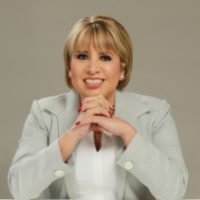
Gladis Araujo is a global business leader with over 25 years’ experience in the field of quality and supply chain in 4 continents. She currently works at Mattel Inc. as Global Quality Vice-president in USA responsible for the global quality digital transformation, licensing, nearshoring initiatives in LATAM and logistics. Her previous assignment was in Malaysia. She was responsible for the quality of Mattel core brands: Fashion Dolls (Barbie) and Die Cast Cars (Hot Wheels) manufactured in China, Indonesia, Thailand, and Malaysia. She was also responsible for 52 global testing laboratories in the chemical, mechanical, and electrical fields. These laboratories are in China, Indonesia, Thailand, Malaysia, Canada, United States, and Mexico. She also oversighted the development of new markets in India and Vietnam. She has a bachelor’s in Chemical and Systems Engineering (Tecnologico de Monterrey), a master’s in Quality and Manufacturing (Tecnologico de Monterrey), a master’s in Organizational Development (Universidad de Monterrey), a master’s in International Management (Thunderbird University) and currently she is working in her dissertation for the doctorate grade in Business Administration in the University of Phoenix. She is the founder and president of several non-profit organizations supporting her communities in Malaysia and Mexico. “Lean In Network, Monterrey” affiliated to Leanin.org a nonprofit organization from Sheryl Sandberg (Facebook COO) aimed to empower women/girls to reach their full potential through circles, workshops, networking and mentoring opportunities. Senyuman (smiles in Malay language) is a play therapy program aimed to support hospitalized children to cope with treatments and long stays in the hospital. Women Center for Change “WCC value shop”. The center focuses in support Malaysian women victim of violence and their children Tenganitas. Organization focused in support women traffic. Gladis Araujo has been acknowledged by the Global Chamber of Commerce in Malaysia as the “2018 and 2019 Top Women Inspiring Humanity Award” for her contributions to her communities. She is the first ever non-Asian woman receiving this recognition.
She was recently acknowledged by the Tecnologico of Monterrey as the 2021 Tec Woman in the category of Transformational Power for her trajectory and contributions to her communities. Gladis Araujo has a vast global business trajectory and works tirelessly for her communities. Her contributions are inspiring and putting Mexicans, women, and their alma maters names in high recognition. Connect with Gladis on LinkedIn.

Allison Krache Giddens has been with Win-Tech, a veteran-owned small business and aerospace precision machine shop, for 15 years, recently buying the company from her mentor and Win-Tech’s Founder, Dennis Winslow. She and her business partner, John Hudson now serve as Co-Presidents, leading the 33-year old company through the pandemic.
She holds undergraduate degrees in psychology and criminal justice from the University of Georgia, a Masters in Conflict Management from Kennesaw State University, a Masters in Manufacturing from Georgia Institute of Technology, and a Certificate of Finance from the University of Georgia. She also holds certificates in Google Analytics, event planning, and Cybersecurity Risk Management from Harvard online. Allison founded the Georgia Chapter of Women in Manufacturing and currently serves as Treasurer. She serves on the Chattahoochee Technical College Foundation Board as its Secretary, the liveSAFE Resources Board of Directors as Resource Development Co-Chair, and on the Leadership Cobb Alumni Association Board as Membership Chair and is also a member of Cobb Executive Women. She is on the Board for the Cobb Chamber of Commerce’s Northwest Area Councils. Allison runs The Dave Krache Foundation, a non-profit that helps pay sports fees for local kids in need. Connect with Allison on LinkedIn.
